derstood better. From it, the following reconstruction can be made:
As early as 3 April 1998, I attracted the attention of the Navy dur-
ing the information meeting. Lieutenant Commander Hamaken
became suspicious when I made notes about the occupational haz-
ards faced by military personnel.
He may not have realised sufficiently that candidates want to
prepare properly. For my part, I was unaware that note-taking is
sensitive in the Armed Forces. Still, I don’t think I did anything
wrong. The fact that a soldier is expected to carry out his mili-
tary duty in spite of danger to his life is a sacrifice that deserves
attention.
Lucas explains that my serious approach at the naval barracks
raised fears that I might be an undercover journalist. It was this sus-
picion that is at the root of a series of rather bungled actions on the
part of Dutch intelligence. Only after two Defence women became
involved in this story and I was eventually confronted with their
conflicting testimonies, I decided to write down my experiences.
Hamaken had given assurances that background checks would
not be conducted until after the selection process was complete.
80
The Cover-Up General

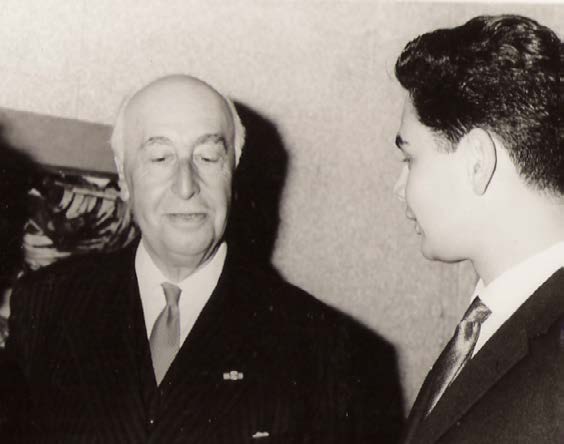
Instead, I was subjected to an investigation without the Head of the
mid having received the necessary authorization from me. Accord-
ing to Lucas, there was nothing about me in the mid archives at the
time. There were, on the other hand, notes in my bvd file which
would be passed to the MoD.
Lucas explains that, as a result, my past work as an escort led to
discussion at Recruitment & Selection. While the bvd escort pro-
ject had to remain secret and the mid was only allowed to evaluate
my antecedents during a security screening, scandal-sensitive sto-
ries took on a life of their own.
It was precisely because of my stature that I was approached
to work for the bvd as an escort. There was a lot of praise for my
clean and healthy appearance, which was in stark contrast to that
of many drug-using prostitutes. However, when I applied to the
Navy, they looked at my qualities in a completely different way. Be-
hind my back, I was judged on having been an escort, while the
bvd had been appreciative of it.
By contracting elite escorts to act as ‘hostesses’ and ‘hosts’ for
high-ranking foreign guests, the State of the Netherlands tore open
a Pandora’s box of ethical questions. However, this is not taken
into consideration. Instead of looking at their own conduct, intelli-
gence officers prefer to focus on the lives of others.
When I tell Uncle Frans about
this unsavoury interest in other peo-
ple’s private affairs, he starts talking
about his adolescence. In the 1950s,
he became friends with José Ruiz de
Arana y Bauer, the Duke of Baena y
de San Lucar la Mayor, who was the
Spanish Ambassador to the Nether-
lands.71 Several times a week, the
Duke of Baena & Frans
ambassador’s private driver would
pick him up from his parents’ home
to take him to the embassy for
dinner.
The duke supported Frans in his
Chapter Nine | Reconstruction
81
painting career and introduced him to the distinguished guests
at these dinners. It was in this way that my uncle came to know,
among others, Prince Bernhard: Queen Juliana’s husband. At the
time, he was the Inspector General of the Army and Navy.
After Frans started working for Naval Intelligence as a draftee,
he was questioned regularly about these embassy dinners. He also
had to relay all sorts of things when De Baena and he were invit-
ed to other embassies. ‘Without realising it, you’re already caught
up in it,’ he says of the espionage work he had to do, while still
under-aged.
Frans says that the marid wanted to know about the diplomats’
political views. Even Prince Bernhard, who according to Frans was
only chasing women, was denied privacy. The Royal Navy looked
for weaknesses and recorded his observations. For instance, the
secret service was intrigued as soon as he got to know about drug
use, because the dignitaries who committed these indiscretions
could be ‘nudged’ because of this.
In particular, they hoped to learn about diplomats’ inappropri-
ate sexual contacts. They were especially keen to hear about homo-
sexual encounters.
The rewards for his intelligence work were plentiful: a large
office room, luxury holidays in foreign cities, fancy hotels and
dinners — it seemed endless. Frans, known in the Navy as ‘the
handsome Dutch-Indonesian’ because of his mixed blood, enjoyed
all the privileges. Cognac and cigars! He couldn’t have had it any
better as a sailor.
However, Frans was annoyed by the constant questioning. He
particularly resented having to betray diplomats who could be
blackmailed over their conduct. Mind you, in the 1950s it was il-
legal for an adult male to have sex with a man under the age of 21.
Diplomats who slept with Frans were committing a sex crime.
At one point, when the marid asked him to have sex with a cer-
tain diplomat, he refused. In his perception, man-on-man love has
nothing at all to do with blemishes or immoral behaviour. In his
eyes, sex is about love. Why would you want to deceive men who
give themselves to you? Frans confides that he secretly protected
82
The Cover-Up General
several people from his superiors. He kept many sensitive matters
to himself.
De Baena eventually learned of his intelligence activities. There
was a great deal of consternation when the ambassador’s limou-
sine passed by the marid one day on its way to pick him up. In the
end, however, my uncle managed to cool everything down. Howev-
er, this meant covertly passing on information about the marid to
his Spanish friend.
When the marid offers him a permanent job at the end of his
military service, Frans turns it down — he finds spying and things
way too confusing. He enters the Royal Academy of Arts and
graduates cum laude in 1960. 72 He is only up for an assignment occasionally.
As for my own adolescence, in 1992 I was assured by the bvd’s
project organiser that there was an occasional need for erotic en-
tertainment late at night among our country’s distinguished guests.
By providing its own escort girls and boys, the bvd was able to fulfil
these wishes, according to the plan presented.
In the meantime, however, I have come to doubt whether the
bvd was really all that concerned about the foreign diplomats.
Does our country show its natural hospitality by providing girls
and boys for amorous pleasure? Was the government providing
prostitute students purely as a service? That the sexual encounters
were secretly paid for, organised and hence more or less set up by
the bvd should have given me pause for thought at the time.
Little did I know then that a ‘honey trap’ is a classic method
used by intelligence services worldwide. This involves a spy agency
seducing a foreign diplomat into having extramarital sex, which
is secretly photographed or filmed. After that, the diplomat is
confronted with the compromising pictures. Secret services have
learnt that sometimes it is not even necessary for their target to
be actually blackmailed. The fear of being blackmailed sometimes
already makes him comply.
I remember well how, in 1992, the intention was to find high
class escort boys and girls, in the interest of discretion. This ren-
dered existing escort agencies in The Hague of little use. Should
Chapter Nine | Reconstruction
83
‘common’ agencies be used, diplomats could potentially be black-
mailed by those. The genuine concern with which these fears
were expressed suggests that not only the escorts were misled at
the time. I suspect that the operation itself may also have been ar-
ranged under false pretences.
In retrospect, it is clear that the escort project would have been
difficult to arrange should it have been disclosed that the bvd in-
tended to use it — by secretly taking on the role of pimp — to black-
mail diplomats. If this had been brought to my attention at the
time, I would have distanced myself from the project at once.
By insisting on the importance of discretion towards diplomats,
the project seemed much safer. Organisers and escorts were able
to take part in this secret ‘security project’ with a clear conscience.
The work, as it was presented to me, appealed to me at the time.
It seemed to be quite an honour to be able to provide a pleasant
evening for high-ranking foreign guests on behalf of the govern-
ment. I would be well rewarded for the expenditure of my sexual
energy and my discretion. I was to be treated very respectfully for
the confidential services, or so I was led to believe.
At the time, I was focused on the pleasures of the business and
did not consider that sex could be used to blackmail escort clients.
That grim thought was too far from my mind.
In my naivety, I did not realise that secret services are cunning
enough to manoeuvre diplomats into compromising positions by
seducing them with hired escorts posing as hostesses (or hosts).
Nor did it occur to me that in this scenario the agents would be so
indifferent as not to inform the escorts of their shady intentions.
That girls and boys who get involved with the bvd, left or right, are
exposed to a world where violence and murder are not shunned:
no, I did not learn that at school.
Only years later did I find out that many prostitutes employed
by the kgb had been killed in the past. 73 The Navy told me honest-
ly that a soldier risks dying for his country, but when the bvd set
their sights on me as an escort, I was not told. Moreover, in 1992 I
knew little about the methods used by spy agencies to keep their
operations secret. So I missed the point that the whole discretion
84
The Cover-Up General
narrative was a perfect cover cunningly used to legitimise this highly controversial project.
Somewhat stupidly, I did not realise at the time that I was being
tricked with pretexts: what young adult would distrust his govern-
ment when it flatters him and appeals to his integrity and class?
Who would ever have thought that Dutch intelligence would violate
the very discretion that it professed to uphold? Who could have ex-
pected this betrayal?
My own escapades, no matter how trivial, were to be assessed
with the utmost prudence for security risks in a screening under
Dutch law. The mid had to keep scandal-sensitive matters to itself.
Nor is it its job to pass moral judgement. Only one thing mattered,
Lucas said: whether or not I could be blackmailed because of my
escort past.
In this context, I would like to refer to the mentality of Presi-
dent Sukarno of Indonesia. During a flight to Moscow, the head of
state was seduced by young Russian women who secretly worked
as prostitutes for the Soviet Union, Pravda writes.74 Sukarno then invited the women to his Moscow hotel room, where a grand orgy
ensued. However, two hidden cameras had been set up there and
were filming the festivities.
Afterwards the kgb showed Sukarno the porn film he had
starred in. The Russians assumed that, in any case, the Muslim
president would not want the footage to be released because it
would embarrass him. But this honey trap turned out different
than expected.
Instead, Sukarno said he was honoured by the film. He refused
to be pressured and asked the kgb for copies so that he could show
the film in cinemas in Indonesia. The statesman declared that the
Indonesian people would be very proud of him when they saw how
passionately he had made love to the lascivious Russian women.
The story goes that when Sukarno returned to Jakarta, he
showed the footage to his entire cabinet. In doing so, he exposed
the treachery of the Russians, proved that he could not be black-
mailed and set an example right away.
In the same way, I have proved that I cannot be blackmailed.
Chapter Nine | Reconstruction
85
After Monica told at Casema behind my back that I did not dare to
talk about my past, I took the presidential route and confided in
the national ombudsman. That I once decided to comply with the
far-reaching wishes of my country — is that something I should be
ashamed of?
If an official security screening had been carried out, which it
was not, there would have been no reason to withhold a Statement
of No Objection from me. If the mid had still been of the opinion
that I was a target for blackmail, I could have appealed to the Min-
ister of Defence. And in the event of a negative decision, there was
still the possibility of going to court. A judge might then have asked
why someone who was approached for a bvd project because of
his integrity, which should have eliminated the possibility of black-
mail, was rejected by the same government as open to blackmail.
One thing is clear at any rate: the assumption that I am gay met
with resistance from the Marine Corps. Lucas explains that this
elite corps rejects all gay candidates in the selection process
and keeps it secret because it violates the constitutional ban on
discrimination.
A senior Human Resources officer at the MoD, whom I met, also
explains this policy to me. When he declares his love for me, I warn
him and tell him that I have experienced untold hassles after apply-
ing for a job with his employer. In response, he says he has a mate
at the mid who handles integrity issues. He will sort it out — all I
have to do is provide my official personal details.
On the morning after 11 September 2001, the officer reports
to my home in The Hague before going to the Ministry for urgent
consultations that day, regarding the attacks in the United States.
Dressed in uniform, he enlightens me as to the illegal nature of the
personnel policy, which is used only by the Marine Corps. He also
says that Commander-in-Chief of the Army Ad van Baal is a per-
sonal friend of his, who is respected by his men because he always
stands up for them.
To sum up, two well-informed insiders independently reveal
that the Marine Corps does not allow gays to serve. In addition,
86
The Cover-Up General
both of them confirm explicitly that I was rejected due to fallacy.
Lucas says that senior MoD officials are aware of the discrimi-
natory policy: they were informed of this in secret in 2000, when
the Dutch Equal Treatment Commission investigated the overt ex-
clusion of women in the Marine Corps. 75 The Minister, it becomes
clear, appears to tolerate discrimination against women and ho-
mosexuals — on the understanding that women are openly dis-
criminated against and homosexuals are covertly discriminated
against.
One might wonder what these marines are so worried about.
Why do they classify men by sexual preference? Requiring every-
one to be of the same sexual orientation in the interest of cama-
raderie is unheard of. After all, the Corps’ right to exist as part of
the Armed Forces is to defend our freedom and the rule of law that
goes with it.
What becomes clear is that the selection psychologists have
been assigned an impossible task. After all, they had to twist and
turn to come up with an excuse for rejecting any homosexual can-
didate from joining this corps.
How is this to be resolved? Well, if the problem lies with the
Marine Corps not being able to deal with gay recruits, the obvious
explanation is that they cannot handle the candidate. This reason
for the rejection may be rather embarrassing for the elite corps,
but there is a grain of truth in it.
During the interview with psychologist Strijbosch, several
questions indicated that my past had been unearthed. This left me
feeling somewhat cornered. Despite this, I did not reveal anything
about my past, which should not have been poked into. In other
words, I didn’t break.
My character being ‘too strong’ was reason for the psychologist
Van der Pol to reject me. He then went on to speak about discrim-
ination against homosexuals within the Corps and his frustrations
with the application process. In his eyes, his military colleagues
were softies who could not hold their own. This assessment squares
with the suspicion expressed while taking notes during the infor-
mation meeting.
Chapter Nine | Reconstruction
87
That might have been the end of the story, except that it was this
strong character that the mid then recognised as an asset.
Lucas explains that my work experience and worldly lifestyle made
me sought after. Indeed, intelligence agencies have a preference
for personnel who can move easily in different environments.
The latter was confirmed years later by a friend from the night-
life scene. His background in the sex industry was well-received by
the intelligence branch of the MoD. He said he was undergoing espi-
onage training there, the secret location of which he also revealed.
My interest in international politics was also something that ap-
pealed to the mid at the time. Lucas reminds me that I once visited
the library of the Ministry of Foreign Affairs to do research for a
paper on the nuclear arms race in the Middle East. 76 This was true; but I had not told him of it. The visit put me in the cross-hairs of the
bvd at the time, and they made a note of it.
Meanwhile, there was a severe shortage of analysts in the mid’s
Intelligence Department. This is clear from the report Nieuw Even-
wicht (‘New Balance’) of November 1998, in which the mid is ex-
amined. 77 Looking for background information on the mid, I was
surprised to be able to pick up a copy at the Defence Information
Centre in The Hague straight away.
The report paints a negative picture of the Intelligence Depart-
ment.78 This was the department where Monica worked and her
frustrations ran high.
Regarding the essential importance of the political-strategic
intelligence perspective, the Intelligence Department ought to
be the core of the overall mid intel turnout. … In practice, es-
pecially in the perception of employees, the department seems
to be isolated. Despite the importance of the Office of Strategic
Analysis, only 13 out of 21 analyst posts are filled. This leads to
severe frustration among staff, as it is seen as an expression of
a lack of attention and leadership on the part of the mid com-
mand. This is underlined by the turnover of managers and staff
in the department.
88
The Cover-Up General
In short, there is a clear need to increase the number of analysts in
the Intelligence Department. The MoD could have simply invited
me to come back for another visit. In a face-to-face meeting, they
could have explained to me that they would prefer to see me work-
ing as an analyst rather than as an officer.
In Delft, nevertheless, the mid resorted to ‘approaching’ me, as
secret services call it when they contact someone for recruitment.
And so it was that Monica started moonlighting at Casema during
mid working hours to persuade me to join the mid. However, Re-
cruitment & Selection was not informed. After all, it was a secret
assignment.
Meanwhile, Recruitment & Selection was stuck with yours truly.
I found to be unacceptable the way in which my application to join
the Navy was rejected. Indeed, by assuming that I would believe
the far-fetched reason for my being rejected — that is, that my char-
acter was too strong — the Navy seemed to underestimate me. As a
military man, I wanted to contribute to the defence of freedom and
democracy and also to prove my manhood for myself in the world.
The fact that the Marine Corps did not know how to deal with ho-
mosexuals was not my problem. As Recruitment & Selection had
made clear, the problem of adaptation lay with the Corps.
After pointing out to Recruitment & Selection that, regarding
the combat job, I refused to accept the cowardly assessment that
the drill sergeants would not be able to break me, they came up
with an excuse out of thin air. All of a sudden, they shifted the prob-
lem of adjustment onto me and accused me of being a drug user.
And this was while the mid went to great lengths secretly to recruit
me for the sensitive position of analyst.
It is obvious: the MoD had become entangled in its own lies. The
aforementioned report describes the chaos at the mid on page 57:
‘The allocation of tasks is […] unclear. Within the current mid, this
means asking the impossible with regards to internal coordination.’
Digging deeper, it turns out that it is not unusual to approach
potential intelligence officers in their own environment. In the late
1990s, Lucas explains, this happened more often. They were ap-
proached in the field by intelligence officers, for example, at their
Chapter Nine | Reconstruction
89
place of work or at an organisation of which they were a member.
This approach had the added benefit of observing potential em-
ployees in their natural surroundings. You could see what kind of
qualities or traits they possessed before they were invited to join
the bvd or mid.
One disadvantage: This way of recruiting is extremely cumber-
some. According to Lucas, the method had gotten out of hand on a
previous occasion. The infiltration into the office of another poten-
tial candidate caused such a stir that it confused the candidate and
he did not enter government service either.
After the out-of-control infiltration at Casema, this controver-
sial recruitment method was abandoned, Lucas said. Quite a few
candidates found the approach extremely intrusive. Using an un-
dercover agent was far too heavy a tool for its intended purpose.
The bvd describes Monica as a Scheveningen doppelgänger of
Martina Navrátilová, working in the Intelligence Department of
the mid. For years she carried out minor observation missions; she
was used to infiltrate organisations.
This information comes as no surprise. Years ago, she had tak-
en painting lessons from my uncle in order to ask him about his
diplomatic contacts. She infiltrated Casema just as easily — which
wasn’t vital to state security either.
It isn’t sensible to try and recruit someone when you behaved
improperly with one of his family members in the past, while on
an intelligence job as well. This may have been overlooked in the
preparations for Monica’s operation because Uncle Frans and I
have different surnames.
Far more interesting than Monica’s attempt to recruit me, is the
fact that Ina was sent to Casema at the same time. Ina’s infiltration
served a bigger purpose. It is true there was a severe shortage of
analysts in the Intelligence Department; however, my recruitment
was simply a pretext to get Monica to infiltrate a business environ-
ment and put her in a vulnerable position.
Lucas points out Monica was more or less being set up — I was
used as a prop for that purpose. That I was dragged in unwittingly,
90
The Cover-Up General
created a smokescreen. And the fact that Casema has nothing to do
with the MoD added to the confusion.
Over time, the mid received several complaints about the way
Monica was working, says Lucas. First, a little more background:
An undercover agent should have a new cover story at the ready
time and again. At the behest of his country, he must constant-
ly spin new lies to cover himself and deceive those around him.
These changing roles have clearly had an impact on Monica. She
tried various colleagues as a sounding board to vent her frustra-
tions. She seemed tired and fed up with all the intrigue. Maybe she
was overworked too. And so we experienced something very unu-
sual at Telesales: Monica complaining that her intelligence work
was driving her totally crazy.
Over time, she became less sharp. While Monica still kept her
assignment at my uncle’s studio to herself, at Casema she openly
dropped all pretences. Everyone was told that she worked at the
mid, and that photographic evidence of the Srebrenica tragedy was
being withheld there.
Lucas explains why it is so important that her employer should
have been able to have complete confidence in Monica: apart from
observation assignments, she also had tasks that involved getting
her hands on highly sensitive information. This included work-
ing as a liaison to the bestuursdriehoek (‘administrative triangle’) in
The Hague. This meant that as mid liaison officer she maintained
contact with this municipal advisory body, which consists of the
municipality, the police and the judiciary. In this capacity, she came
across documents from Mayor Deetman, Chief of Police Wiarda
and Chief Public Prosecutor Van Gend — the three leading figures
who later hindered the prosecution of Monica for defamation!
Monica secretly made copies of sensitive information from The
Hague triangle, Lucas said. This was possible because she had to
move them from one place to another.
According to Lucas, in the same way Monica had collected
highly sensitive documents, regarding the smuggling of hard drugs
from the Caribbean, by members of the Marine Corps.
The Public Prosecutor announced the arrest of two marines on
Chapter Nine | Reconstruction
91
this charge on 10 July 1998. They were in the very Coast Guard team
that was supposed to be fighting this particular crime in these wa-
ters. Two days earlier, their last caper, they had hidden 125 kilos of
Colombian coke in military duffel bags that were being transport-
ed by Orion aircraft from the Netherlands Antilles to the naval air
base at Valkenburg in the Netherlands. They were discovered by an
MoD mole who infiltrated the drug syndicate. The Public Prosecu-
tor’s Office also conducted observations and tapped phones.79
After the smuggling gang was busted, hard drugs became
scarce in the Netherlands. In the newspaper for the homeless in
The Hague, which I read occasionally, addicts complained about
their hopeless situation. With the drying up of the Antilles route, it
was difficult to acquire narcotics. In addition, the price of cocaine,
which was now only put on the market in small quantities by drug
mules, had risen considerably. This news from the lower depths of
society seems to indicate that marines who had received a Certif-
icate of No Objection from the mid were responsible for a signifi-
cant portion of the cocaine supply in the Netherlands.
Many more civil servants — from the top to the bottom — were
involved in the drug trade than has been revealed, Lucas explained.
Moreover, I am told that, in order to protect their interests, mp
Maarten van Traa, who was investigating the case, was killed de-
liberately in a car accident in 1997. His brakes had been tampered
with radiographically — they jammed just as he drove into a traffic
jam, according to my bvd contact.
(Years later, the former Head of the bvd, Arthur Docters van
Leeuwen, would write in his memoirs that he did not believe it was
an accident: ‘The police found nothing to suggest that his car had
been sabotaged, but I still have a bad feeling about it; it seemed too
coincidental to me.’ 80 )
Lucas says there were fears that Monica would leak the files she
had copied to the press. However, thanks to the fact that she was
under observation in Delft, it did not occur.
In tears, Monica had complained that her Marine colonel had
been sacked by the Head of the mid and that she wanted to leave
the MoD herself. Lucas has a different explanation: with Ina’s secret
92
The Cover-Up General
testimony of Monica’s violations of state secrets and the photos of
the latter’s infiltration, Monica and her rebellious superior would
have been put under pressure and forced to leave.
This way, opposition against the Srebrenica cover-up would
have been quashed. The bvd top official, who monitored this affair
so closely, revealed that he saw this as a kind of power grab within
Dutch intelligence.
Incidentally, Ina did not make it in the intelligence sector. Lucas
notes that her first undercover job, which caused so much unrest,
was also her last. Besides Monica and her Marine colonel, the op-
eration would have cost Ina her job as well.
The scandal not only affected Casema’s management and employ-
ees, but also claimed victims. Jasper’s stepfather, a kind and hard-
working man, lost his high position as a result. For Anna, being
confronted with a break-in by spies in the department she man-
aged, it was also an unpleasant experience.
Lucas reveals that during this confusing period, my phone was
tapped by the mid. After I left Casema, Jasper and I were on the
phone a lot, and we talked regularly about the situation there and
about this secret service. The content of these conversations would
have worried the mid. For example, on 4 September 1998, I told
Jasper that the recruitment operation at Casema was used in a
power struggle between generals. It appears the mid had no clue
as to how I knew that, since I had neglected to say in that particular
private conversation that it was only a suspicion that had spontane-
ously occurred to me at that moment.
Other calls also seem to have led to a certain amount of para-
noia at the mid. For example, mp Gerrit Valk called me in late Au-
gust 1998 to arrange a meeting after I had written to him on Uncle
Frans’ advice. Apparently, the mid was hugely shocked by this: Valk
specialises in military policy and was concerned with Srebrenica.
What the mid did not know at the time is that, while at the parlia-
ment building, subsequently I had a confidential conversation with
a member of Valk’s staff, about the situation in a museum in Leid-
en. This specific appointment had not been about the obscuring of
Chapter Nine | Reconstruction
93
sensitive photographs, but about the obscuring of artefacts. 81
I had never spoken to Lucas about my contact with Valk before.
The fact that he mentioned the mild panic this caused in military
circles, indicates that my phone was indeed being tapped. As far as
this phone call is concerned, Valk was also bugged. This is disturb-
ing, as his duties as an mp include oversight of the MoD, which in
turn should have no oversight of mps.
Lucas explains that over the course of many months, my phone
calls were processed into wiretap reports. Even long private con-
versations with friends about topics such as sports, dating and sex
appear to have been typed up word for word by audio editors. After
that, all the chatter is supposed to have been studied by analysts.
Instead of being concerned with state security, they appear to have
monitored meticulously the joyful lives of a few young men.
My garbage bags were also secretly taken and rifled through,
according to Lucas. From those, it is easy to deduce that I don’t
smoke, drink or take drugs. In addition, the gloved person sifting
through the smelly mess must have been able to tell from the pack-
aging that my beef burgers were from discounter Aldi.
If the mid had wanted to know my opinion regarding this spy-
ing affair, all they had to do was ask. It would have provided them
with more relevant information.
I am frank by nature. In Uncle Frans’ salon, I learnt the value
of people approaching each other with an open mind. From brick-
layer to princess, 82 from monk to call girl, from clown to general: the social status of the guests was of little importance, and their
work was not judged as good or bad. This live-and-let-live mentality
I adopted.
The mid had a hard time pigeonholing me, according to Lucas.
Defence intelligence was under the misapprehension that due to
my modest wages and social status, my network couldn’t possibly
be extensive. It puzzled them how I was able to get in touch with
the bvd and unravel the ins and outs of their operation. Add to this
a considerable amount of suspicion — not uncommon in the espio-
nage industry — and it is clear there has been a great deal of specu-
lation about my motives for wanting to join the Navy.
94
The Cover-Up General
One of the hypotheses focused on the smuggling of drugs by
marines. According to this crazy story, I applied to the Marine
Corps to infiltrate — mind you — on behalf of a rival drug gang on
the highly profitable trafficking route controlled by the Marines.
In talks with Lucas, we express our suspicion that this theory
originated from another tapped call misinterpreted by the mid. Be-
fore I hooked up with Jasper, I once dated a naughty Antillean. An
over-zealous analyst might have promptly linked me to his rogue
circle of friends, after which, on paper, I would have connections
with an Antillean gang.
Another theory is that I applied to the Marine Corps with the
audacious plan of exposing gay discrimination. The fact that I was
supported by a top gay rights lawyer after my rejection, supports
this story. But that is not true either. Call me naive, but prior to
my application, I did not expect to be discriminated against by the
Armed Forces.
The main purpose of my complaint to Ombudsman Oosting was
to clarify some confusing issues. But it made Monica jealous, says
Lucas. She reportedly felt snubbed in her ambition to become a
whistle-blower and lied during her interrogation.
Lucas points out that the mid had made a secret agreement
with Monica to support her if she discredited me. He insists that
mid Major De Ruyter conspired with Monica to make the false
statement.
In addition, Recruitment & Selection also made a false state-
ment to Oosting, Lucas confirms. Contrary to Permanent Secretary
Barth’s letter of 2 March 1999, Recruitment & Selection was said to
have been informed in advance of my background check, as be-
came clear to me immediately during the psychological interview.
If the National Ombudsman had done his job properly, he
would have exposed the lies. Unfortunately, he did not show his in-
vestigative prowess. Although, according to the bvd, the MoD was
asked why an mid officer was sent to Casema, the Ombudsman was
provided with the vague reply it was a state secret. As far as the
Ombudsman was concerned, that was the end of the matter.
A state secret is information which could endanger a country,
Chapter Nine | Reconstruction
95
should it end up in the wrong hands. Is the reason for Monica’s de-
ployment really a secret, the disclosure of which would jeopardise
the safety of us all?
That is not the case. If it had come to light that Monica had infil-
trated Casema to recruit me, the mid would have suffered a back-
lash over her bogus report.
A few weeks after I called in lawyer Gerard Spong, the Head
of the mid and his deputy both lost their jobs. According to Lu-
cas, Minister De Grave decided to dismiss them not only because
they withheld a report on right-wing extremist behaviour among
Dutchbat veterans. Reproduced here, is the aforementioned Word
document from the bvd top official and Lucas:
The mid withheld the report of [Ina] from the Minister of De-
fence. Only in July 1999 would it come into his possession.
Partly as a result of this report, on 13 July 1999, the Minister of
Defence held an in-depth interview with the Head of the mid,
General H.J. Vanderwijer, and mid Chief of Staff, Mr R. Wielin-
ga. Minister De Grave is furious with the mid command. The
discrimination against homosexuals, the forbidden infiltra-
tions, the withheld report, the revelations about the Srebrenica
photos, the tribal struggle within the mid, etc., convince him
that the mid needs to be reorganised more thoroughly than al-
ready planned.
The Minister of Defence strongly criticises the fact that the
investigation by the mid Chief of Staff was sent on his behalf,
on 2 March 1999, for which he [in casu, the Minister] could have
been prosecuted. After all, this investigation of [Monica] con-
tained pertinent lies, and the mid top brass was aware of this.
Minister De Grave deems it unacceptable that the mid com-
mand misled him and defended [Monica]. As a result, the Head
of the mid and his Chief of Staff decide to resign.
In the press, De Grave spoke only of the report on right-wing ex-
tremism, which was withheld. No mention was made of Ina’s re-
port. By not mentioning my name at all, the MoD was protecting
96
The Cover-Up General
my privacy, Lucas said. However, not having been consulted my-
self, I doubt whether my interests were taken into account.
It is no less surprising to learn that the Defence leadership has
given me a moniker. In their vernacular I am referred to as Guillo-
tine, instead of Giltay, in this case referring to the ‘severed heads’ of
the two mid executives.
No mean feat perhaps, but upon being informed of this by the
bvd, I do not jump with joy. The message is surreal, as I am not
vengeful and have not taken up the hatchet against the Defence Or-
ganisation. It is not me that caused the heads to roll; the Head of
the mid and his Chief of Staff fell on their own sword.
In principle, what I was concerned with was clarification: the
point of the whole affair seems to have been to set up Monica. She
was sent to recruit me, which was a trap. As a Dutch citizen, you
don’t expect to be confronted with such elaborate scheming.
Only now do I realise that my country has a lot to hide. The fact
that the intelligence apparatus has been so eager to use the dispro-
portionate means of infiltration in this affair says something about
its dogged determination to keep shameful matters under wraps.
A tribal war with antagonists baying for blood — I should never
have been part of that. On the contrary, from an ethical perspec-
tive, I should have been protected by the mid and bvd from se-
cret service machinations. Unsuspecting citizens like my Casema
managers and myself were put in a bizarre situation: we found our-
selves asking the authorities to clarify a genuine espionage scandal
unfolding in the Dutch lowlands. That is quite telling.
A typical whistle-blower is an employee who discloses miscon-
duct by their employer, thereby ‘betraying’ their own bosses. Be-
cause of this, whistle-blowers often struggle with their loyalties.
Although I witnessed a spy debacle, I do not fit the description
above: I never worked for the MoD and I have no complaints about
Casema. In that respect: my manager Lisa did her best to clear up
the espionage crimes that had terrified our office. She deserves
nothing but praise for this.
In my view, an operation intended to quash internal opposition
to the withholding of evidence of war crimes, should be described
Chapter Nine | Reconstruction
97
carefully and thoroughly — as this is in the public interest. This is
why I feel compelled to divulge the questionable actions of the peo-
ple involved. I have attempted to present this as objectively as pos-
sible in this exposé.
I have chosen to be discreet here and there. The fact that civ-
il servants were only too happy to tell their story did not stop me
from protecting them where necessary. On the advice of the bvd, I
have omitted some of the disclosures they themselves provided, in
the interest of my own safety and that of others.
My complaint to the National Ombudsman was looked into by
the State Attorney at law firm Pels Rijcken, Lucas reveals. This was
confirmed years later by a former employee, to whom I promised
anonymity.
However, the Armed Forces are said to have refused to disclose
the background to the case, much to Pels Rijcken’s dismay. While
I was briefed in detail by a senior intelligence officer in the Home
Office about what the MoD had been up to, the Armed Forces, so I
am told, did not dare share the case’s background with their lawyer.
After examining the documents submitted by the MoD, the
State Attorney advised to settle the case with me, so Lucas says. But
I was never approached with any proposal. The Ministry refused
to retract the false and murky statements the mid top brass made
about me. Despite an angry minister sacking the mid command,
the Ombudsman declared my complaint unfounded.
On Spong’s advice, I wanted to report the criminal offences. For
as long as possible, however, the police refused to file a report. The
bvd connects their reluctance to Monica’s former liaison job: she
knew too much. She had kept the copies of the documents collect-
ed from Mayor Deetman, Chief of Police Wiarda and Chief Prose-
cutor Van Gend, should the need arise to save her own skin. She
threatened to leak them to the media, thereby opening a can of
worms, Lucas said.
This explains why the police and judiciary in The Hague refused
to file a report and prosecute Monica.
The opposition I faced in this matter finally led me to appeal
to the Queen. Shortly after her intervention, Deetman formally
98
The Cover-Up General
admitted that his police force had bungled. But there was more going on.
Lucas reports that the National Police Internal Investigations
Department (Dutch: ‘Rijksrecherche’), the special police branch
that investigates government corruption and war crimes, conduct-
ed a criminal investigation into the affair. To this end, two police
investigators reportedly spoke to Mark and visited Casema to talk
to my former colleagues.
Lucas points out that, following investigations, the National
Police Internal Investigations Department was highly critical of
the conduct of the two Defence women at Casema. These find-
ings would in fact have cleared me completely of the phony MoD
accusations.
However, I was told the Internal Investigations Department
decided to close the case and keep it under wraps. The mid’s with-
holding of photographs of war crimes in Srebrenica was not ad-
dressed. Nor was my name cleared.
Lucas says that another miscarriage of justice at the time had
actually been put right. Police Chief René Lancee of Schiermon-
nikoog Island had been arrested by a special squad in 1996, after
his daughter had accused him of sexual abuse. Later, it turned out
that leading questioning by the National Police Internal Investiga-
tions Department had led her into giving a false statement. Accord-
ing to Docters van Leeuwen in his memoirs: Police and prosecutors
had ‘made mistake after mistake and made a mess of things’.83 As a
result, many officials and politicians were forced to resign. 84
According to Lucas, the reason for clearing Lancee’s name pub-
licly, and not mine, was partly due to his social status. They weren’t
keen on showing someone like me the same courtesy. The bvd top
official’s assessment: ‘The authorities consider your interests to be
secondary to those of the state.’
Character assassination is not uncommon. The MoD labelling me
‘mentally ill’ after having first deemed me suitable as a military
analyst, was not their only faux pas. The same thing happened to
intelligence analyst Fred Spijkers, who refused to keep a scandal
Chapter Nine | Reconstruction
99
about defective land mines under wraps. Maliciously, the Armed
Forces diagnosed him as paranoid and schizophrenic.85 Later on,
while at a branch of McDonald’s, the whistle-blower was under ac-
tual gunfire by five soldiers, stationed at the Soesterberg Air Base
next door. 86
Has the Dutch government ever considered the consequences
of this ‘human resources policy’? With such conduct, how does the
MoD intend to recruit sensible intelligence officers?
After the false mid report was issued, I came into contact with
partner secret service bvd. I kept them informed on this nationally
sensitive matter as best I could. Even if my role as an informant
was only of little consequence, I was pleased they took my testimo-
ny seriously. Also, I welcome that a lot of details of the scandal have
been exposed to me by a senior official of the bvd. That is a relief
and I am grateful to him and Lucas for their assistance.
However, the government’s refusal to clear my name, is most
unsatisfactory to me. Despite being useful as a witness for the bvd,
the State prefers to leave me to my own devices. They even choose
to commit character assassination by falsely claiming I am mental-
ly ill. Subsequently, they dismiss me as a witness to this affair. Ap-
parently, this is something I have to come to terms with. According
to the bvd chief, resistance is futile because the national interest is
at stake here.
Lucas points out the purpose of this so-called ‘diagnosis’: the
mid’s intention is to disqualify as implausible my testimony about
their intrigues. Thwarting my career — putting pressure on Casema
to dispose of me — seems to have fitted into this strategy as well.
These disruption measures were not limited to my professional
life. Among other things, I am able to prove that my boyfriend was
told to stop contacting me — he was given to understand I was un-
easy talking about my past.
Lucas explains that undermining careers and creating difficul-
ties in people’s private lives, are common intelligence tactics. This
string of measures is meant to thwart me: I must be crushed.
The realisation that my country turns its back on its own cit-
izens in such a callous way is quite a blow. It is a hell of a thing
100
The Cover-Up General
when the government interferes in their careers and private lives
and tells them that they have to put up with it in the national inter-
est. I find it tormenting that the State should assign me this fate.
Serving the interest of the government by remaining silent while
it is attempting to make your life impossible does not feel like a
noble cause.
The more I think about it, the clearer it becomes. The expec-
tation that I will allow myself to be broken inwardly and give up
ideals for an unspecified interest is misplaced. Sacrificing myself
for the sake of a cover-up goes against everything I stand for: the
pursuit of light and truth. My character was not only found strong,
it is strong. Give up? Never.
The reality, however, is murky. The pile of documents proving
that justice is on my side; an intervention by the Queen — they may
be trump cards, but they are difficult to play on this issue. Here, the
government operates clandestinely by not playing by the rules of
the game.
Outlawry is a medieval punishment that allows anything to be
done to a person, without him being protected by the rule of law.
Why is it that the Netherlands today is covertly imposing such a
punishment on its citizens? What kind of dystopia is this?
If a reader ever finds himself in the position of being thwart-
ed by his government, he will need time to come to terms with it.
He will be so disillusioned by the disruption measures that it will
become a necessity for him to fathom exactly what is going on.
He will wrestle with the question of what his country, which has
driven him into a corner, is actually doing. And if he survives the
attacks, both physically and mentally, he will need to find the right
tactics. In what way is he able to maintain himself somewhere de-
spite the opposition?
I experience this quest for answers — despite the unwavering
support of friends and family — as an individual process. Unravel-
ling the dark intrigues on my life’s path has led me to contemplate
them in silence. As a result, the disruption measures, however
grim, result in a solution-orientation in yours truly that I have
come to appreciate as invaluable. As Nietzsche noted about the
Chapter Nine | Reconstruction
101
‘war’ that constitutes our life lessons, ‘That which does not kill me
makes me stronger.’
I soon realise my position: a rather insignificant citizen facing
a supreme adversary. A counter-attack would be futile. For me
this is reason to dismiss feelings of anger as pointless and thus
neutralise them.
It is better to face the disruption measures in all their grim-
ness, without anger or self-pity — after all, I refuse to be disrupt-
ed. In my mind, however, I continue to search for truth. And my
role in the big picture quickly becomes clear: I am the louse in the
fur — too puny for a mastodon to properly defend itself against.
The more ferociously he tries to knock off the louse, the more he
hurts himself.
Of course, the battle that the Dutch State is fighting cannot be
won by one person. The Netherlands is too powerful for that. But
that is not important, as I have no ambition to force a minister to
resign or to overthrow the government. On the contrary, making a
modest contribution to citizens’ freedom — protecting the rule of
law: that is what I am all about.87
It is this task, in the face of sinister intelligence machinations,
that I take on with zeal. The fact that I’m able to dedicate myself
to my ideals — even if I won’t be wearing a beret — gives me a won-
drous satisfaction in this quagmire of deception.
Realising that the Armed Forces have entered an asymmetric
conflict naturally points to the only effective tactic for my task: my
pen can hold a mirror up to the State. Was it not Van der Pol, the
military psychologist, who pointed out that people within his or-
ganisation are vulnerable to words chosen carefully?
By mirroring them, the attacks can be evaded. Indeed, I am
convinced that the energy and momentum being used to try to
harm me will backfire on the State itself. Let’s look at this conflict
in a broader perspective than just on an individual level. What
unspoken national interest is at stake here, that my country feels
compelled to silence an unwanted witness? Whose credibility is re-
ally at risk here?
The Srebrenica tragedy plays a leading role in this affair. The
102
The Cover-Up General
fact that thousands of civilians, whom the Netherlands were sup-
posed to protect, have been shot dead has left us with a nationwide
trauma. In retrospect, the Dutch Army command should have or-
dered all Dutchbat soldiers — elite soldiers no less — to fight.
Why this unparalleled negligence? After the fall of the city,
Dutch soldiers helped to separate the Bosniak men from their
women. Why is everyone in the Netherlands being deceived about
the Srebrenica photographic film showing this assistance?
During working hours of her military job, Monica revealed at
Casema, after repeatedly introducing herself as an mid officer, that
the roll is simply withheld to protect Dutchbat veterans on the ten-
nis court or in the pub. Should the photos be published, it is after
all quite possible that they would be approached by friends in their
spare time about their role in the tragedy of Srebrenica.
The truth is disturbing: footage of an impending genocide has
been covered up so that veterans can have a pint of beer in the pub
without being disturbed. Their observations of a massacre seem
less important than the protection of their reputations, among
friends and acquaintances. The clarification of the genocide is ap-
parently not a priority for the MoD. No, their image, the good name
of the boys — that is what it is all about.
Needless to say, it is against our democratic rule of law for the
photo roll to be withheld. Nor is it in the national interest for this
deception not to be corrected after critical examination. So why is
the Dutch State still keeping the lid on the cover-up? Is the Royal
Netherlands Army perhaps too cowardly to face up to its own role
in the fall of Srebrenica — this national trauma? And does it resist
disclosure because its credibility is at stake?
Chapter Nine | Reconstruction
103
CHAPTER TEN |
CHAPTER 10
Unmasking
The question that remains is: who is behind this scandal?
Who was behind the office intrusion aimed at breaking the
intelligence opposition to the Srebrenica cover-up? Who
was steering Ina?
The answer may be found among those who have not come
to terms with the fact that most of the Dutchbat soldiers were
not ordered by their immediate superiors to fight to protect the
enclave.
On 18 April 2002, everything becomes a lot clearer to me as soon as
I set eyes on the daily Algemeen Dagblad. On the front page there is
a large colour photograph of a woman whom I know well. It’s Ina! I
wonder what the newspaper is reporting about her.88
Unlike Ina, I saw Monica occasionally. I ran into her at the pop-
ular Albert Cuyp Market and in the night-spots of Amsterdam.
Although I then try to ignore her, I can see her shaking with
fear. While I am comfortable in my skin and often shamelessly
happy, Monica is terrified. The uncomfortable situation makes me
realise that a spy in our small country is not able to go through life
in anonymity. She soon loses face.
In the newspaper picture, Ina has a facial expression I know
well. It reminds me of the fear I read in her trembling body and
face whenever her husband was mentioned. Well, the husband is
also pictured, with his hand resting on her shoulder.
The caption reads: ‘General Van Baal, who has resigned yester-
day as Commander-in-Chief of the Army under intense political
pressure, went for an off-duty walk with his wife last night.’ I am
struck by the fact that Ina’s husband is none other than Ad van Baal,
104
The Cover-Up General
a protagonist in the Srebrenica tragedy — the second-in-command
of our army at the time.
A week earlier, the Netherlands Institute for War Documenta-
tion (niod) published the shocking investigative report Srebrenica:
a ‘safe’ area.89 In response, the Ministers Jan Pronk and Frank de Grave announced that they would be stepping down. 90 Finally, on
16 April, all ministers collectively resigned from their positions:
Prime Minister Wim Kok’s government fell.
The daily Het Financieele Dagblad comments on the collapse of the
cabinet: ‘Perhaps Kok can look everyone straight in the eye, but the
fact that it took the Netherlands seven years to come to terms with
Srebrenica morally and politically shows how difficult it is for the
Netherlands to face up to its own limitations and moral incapacity.’ 91
Press photographer Cor de Kock took the picture in the Alge-
meen Dagblad newspaper. When I call him years later, he tells me
that he found out Van Baal’s home address through his contacts
and had waited there in the hope that he would come out. But Van
Baal had already seen the paparazzo and stayed inside. Then De
Kock set a trap. He pretended to give up and drove off. But he did
not go very far. A little further on, he parked his car to stand with
his camera in a concealed position.
And so the couple went out after all. De Kock ambushed — an
ancient military tactic — the fallen general and photographed him
in the company of his horrified wife.92 As a result, the Van Baals are now on the front page of the Algemeen Dagblad.
Van Baal’s biography on the internet gives his wife’s full name.
Apparently, Ina combined a false first name with her real maiden
name during her undercover assignment.
The newspaper picture makes me think about Ina’s behaviour.
From my very first meeting with her, I knew something was wrong.
Now it turns out that my intuition was right.
As the spy intrigue had scared Casema, I call the cable compa-
ny. In a friendly conversation with Mr Hartogs, I tell him about the
newspaper photo.93
Earlier, the bvd had informed me about Ina’s identity. At the
time, though, I found it hard to believe that she was actually a
Chapter Ten | Unmasking
105
general’s wife. Surely it is beyond words for a general to use his
wife as a spy for his personal career interests. How can they be this
meshugge in the Dutch Army?
The publication of the photo confronts me with the truth and
removes the last doubts about the identity of my former colleague.
As the final pieces of the puzzle fall into place, I am getting closer
to the bottom of this cover-up scandal, in which sensitive photo-
graphs play a prominent role.
I have never been trained as an analyst. Perhaps not all of the
details are completely accurate, but these are my findings:
1. On 13 July 1995, three Dutchbat servicemen take photographs
of nine murdered Bosniaks in the fallen town of Srebrenica.
Lieutenant Koster stands among the bodies to show the world
the war crimes of the Bosnian Serbs. The three even risk their
lives, as they are shot at by Serbian soldiers immediately after
taking the photos. However, the Dutchmen manage to escape
and bring the photo roll to safety.
But the mid decides to cover up the footage. Indeed, the Sre-
brenica roll of film has a dark side.
The footage also shows Dutchbat soldiers aiding the Serbs
in the illegal deportation of the population. Also, they helped
to separate the men from their wives and children. The inten-
tion may have been to protect them from violence and robbery.
However, this can also be interpreted in another way, namely as
participation in acts of preparation for genocide.
Collaborating in deportation and separation can’t stand the
light of day. The Srebrenica photo roll is covered up for fear of
negative publicity.
2. On 15 July 1998, an intruder takes pictures of mid officer Monica
at a business premises in the Dutch polder. She is photographed
in the midst of her colleagues at Casema to prove that she has
infiltrated the company illegally. The flashes of light attract at-
tention: the intruder is chased by a worried helpdesk employee
but manages to escape.
106
The Cover-Up General
Monica and her intelligence boss — a Marine colonel — are
put under pressure with the photos and leave the mid. But then
the incident at Casema is covered up as there is a dark side to
this story as well.
Monica and her boss had been against the cover-up of the
Srebrenica photo roll. In doing so, they made an enemy of the
Army command, who set a trap for them. Monica was lured into
infiltrating Casema so that she could be secretly observed by
Ina. Of course, the latter’s infiltration is no less controversial
than Monica’s. For example, Ina helped the photographer by
stealing an access pass for him. His intrusion can’t stand the
light of day, and the ‘Casema photo roll’ is also hidden away.
3. On 17 April 2002, Cor de Kock photographs three-star General
Ad van Baal in civilian clothes in front of his residence. He is out
of a job: earlier that day, he was forced to resign as Commander-
in-Chief of the Army due to the controversy surrounding his
role in Srebrenica. Next to him is his wife — and I recognise her
as Ina: the mole in Casema.
Below the press photo is an article by crime reporter Bert Huisjes,
headlined ‘Wonder boy Van Baal turned cover-up general’.94 Huis-
jes writes: ‘What was wrong with Van Baal? A lot, and the Minister
knew it. … For example, in the months following the tragedy, he
investigated the functioning of Dutchbat, but did not inform the
Minister at the time, Voorhoeve. He also came up with the idea of
softening the sharp edges of the information from the Dutchbat
soldiers’ debriefing. All conversations were stamped ‘confidential’,
allowing the army to determine what could and, more importantly,
what could not be made public.’
The Algemeen Dagblad continues: ‘It turned out to be a pattern,
especially when a withheld statement that Dutchbat had signed in
July 1995 at the request of the Serbs also later surfaced. The Nether-
lands had committed itself to ensuring that the deportation of ref-
ugees was carried out correctly. The fax disappeared into a drawer
of Van Baal and only came out years later.’
Chapter Ten | Unmasking
107

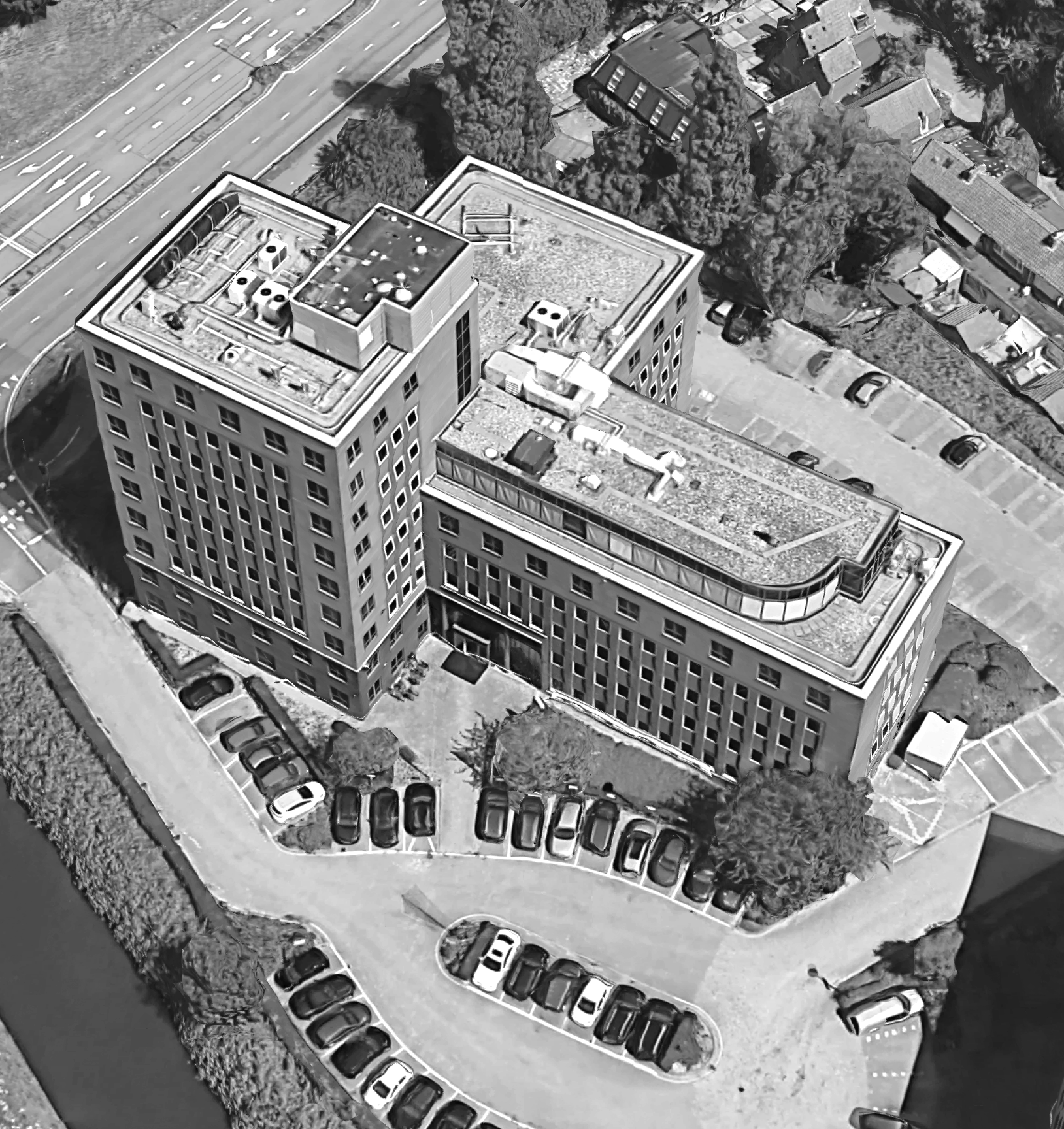










































Organigram | Casema workfloor
Telesales
108
The Cover-Up General

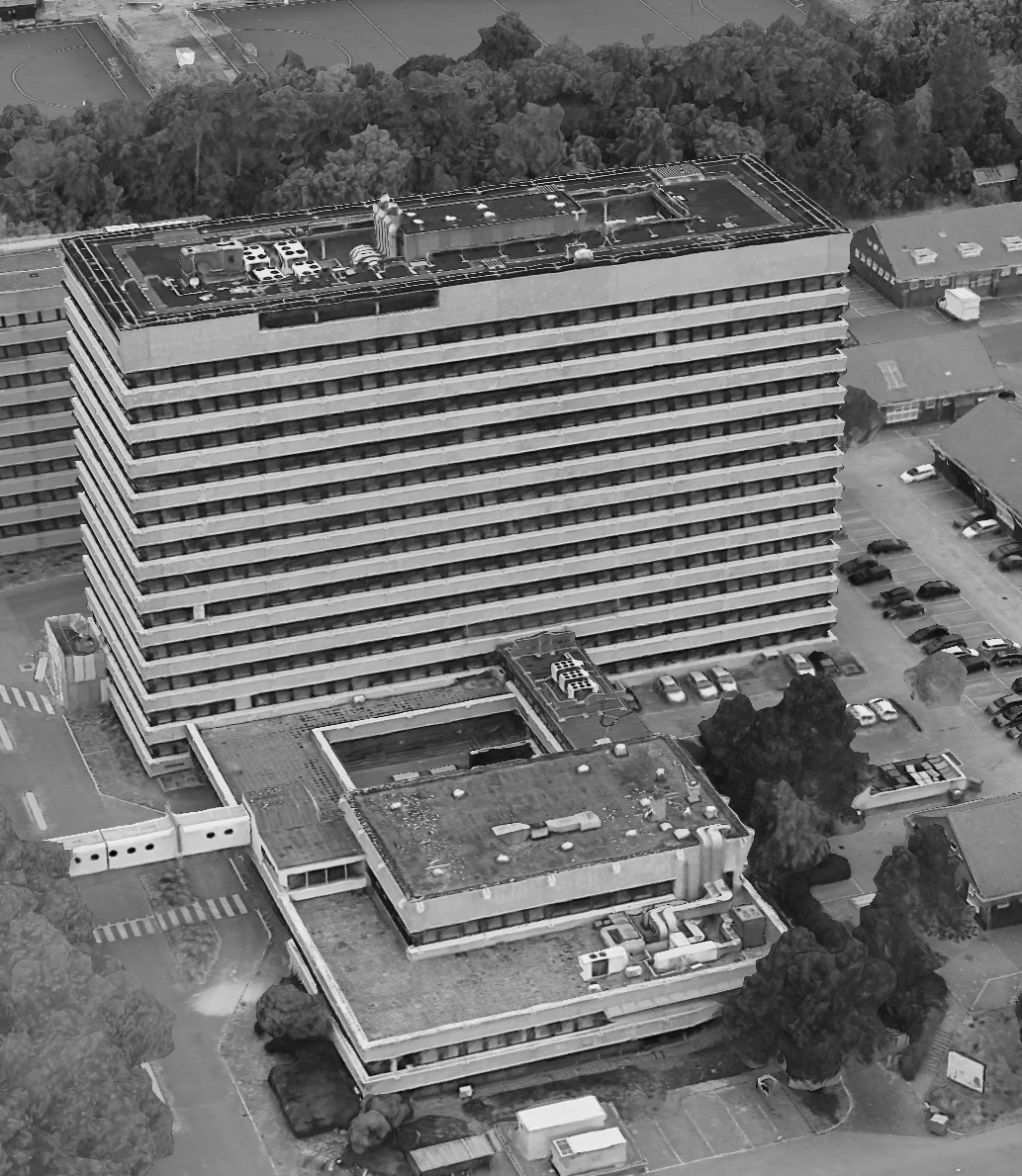



























Defence workfloor
Military Intelligence
Key to infiltrations:
Military Intelligence
Van Baals & henchman
Investigation officer
(positions held in July 1998)
Chapter Ten | Unmasking
109

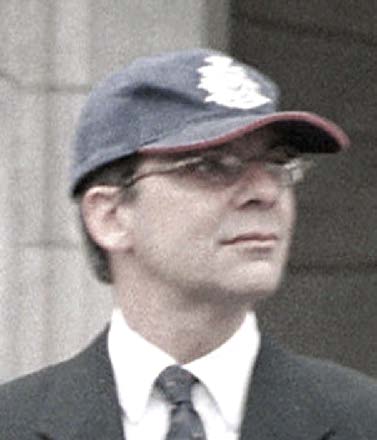
Outgoing Minister De Grave declares that
Van Baal ‘can no longer function properly in
the interests of the Royal Netherlands Army in
the light of the public discussion following the
niod report and the questions that have arisen
in the process about the functioning of the Ar-
my’s top command at the time, of which he was
Minister De Grave
a member as Deputy Commander-in-Chief.’ 95
De Grave also explains that he can no
longer take responsibility for the ongoing de-
ceit in his department. His reason for resign-
ing is that there is an unwillingness at the
Army command to keep Parliament properly
informed. 96
110
The Cover-Up General
CHAPTER ELEVEN |
CHAPTER 11
Integrity
Because he moved to Amsterdam, Gerard Spong transferred
my case to a colleague who had stayed behind in The Hague.
That brought me a new lawyer: Anousja Wladimiroff, who
works in the prestigious criminal law firm of her father, Mikhail
Wladimiroff.
Spong planned to file an Article 12 suit on my behalf, which
would allow me to appeal Chief Public Prosecutor Van Gend’s deci-
sion not to prosecute Monica. 97 However, Wladimiroff Jr. was less
willing to stand by me. It was only on 7 March 2001, after I had writ-
ten insisting on her professional assistance, that she finally com-
menced proceedings before the Court of Appeal in The Hague. 98
A year and a half later, on 13 November 2002, the court hearing
takes place.99 At the Palace of Justice I meet my lawyer for the first time — she refused to make any kind of appointment with me before the hearing. Monica is not summoned. Three judges sit across
from me in the courtroom. Members of the public have just been
asked to leave: the hearing is in closed session.
Wladimiroff presents an account that in no way does justice
to this intelligence scandal. She does not mention, for example,
that Chief Public Prosecutor Van Gend may have spared Monica
because, as a former liaison, she could put pressure on him with
sensitive documents. Wladimiroff also fails to mention that Moni-
ca disclosed state secrets at Casema by complaining that the Dutch
government is withholding photographs of Serbian war crimes.
Despite my explicit request, Wladimiroff Jr. refused to inves-
tigate the background of this case. Simply requesting the police
records on the unauthorised entry into Casema — which revealed
Chapter Eleven | Integrity
111
Monica’s double life as an mid officer and Casema employee — was
too much for my lawyer. 100 In her opinion, these matters were not
related to the Article 12 proceedings.101
On the other hand, my law firm is spending a great deal of time
and energy in providing assistance to Serbian war criminals. My
city of birth and residence, which is known as the ‘International
City of Peace and Justice’, is small. For example, Wladimiroff Sr.
assisted none other than Slobodan Milošević, the former Serbian
president indicted by the International Criminal Tribunal for the
Former Yugoslavia, on charges including genocide in Bosnia.102
As soon as Judge President De Vries gives me the floor, I declare
that the mid has thwarted me both at work and in my private life.
Here, I am not referring so much to the events at Casema, but main-
ly to more disturbing disruption measures that took place after 1998.
In the Court of Appeal, however, I am not elaborating on these
threats, because they can hardly be proven. Indeed, when the in-
telligence agencies target someone, they prefer to do so in a way
that makes it difficult for the person concerned to complain about
it. You will not receive any proof of the threat. No, it is my expe-
rience that secret services have a preference for shadowy, almost
incomprehensible machinations. I will describe one threat here:
Back in October 2000, a Frenchman contacted me over the in-
ternet. He worked as a concierge in a four-star hotel in Paris and
wanted to show me his city. The man also offered me accommoda-
tion and food. 103 But I had my doubts, especially when I saw a bbc
documentary on tv about the death of Princess Diana. The docu-
mentary explained that hotel concierges in Paris work for French
intelligence by default. After all, a concierge is simply a useful
source of information.
After I enquired, Lucas warned me about the plan by French
secret service agents to plant hard drugs in my rucksack during
the train journey. There would also be a border inspection of my
high-speed train, so I could be arrested on the spot for smuggling.
Lucas further explained to me that foreign intelligence agencies do
often solve problems for each other. In this case, it was a friendly
112
The Cover-Up General
service provided by French military intelligence, the General Di-
rectorate for External Security (dgse), at the request of their Dutch
counterparts who wanted to get rid of me.
I am immensely grateful to the top official of the bvd. With-
out his warning, I might have only seen Paris from behind bars.
It would certainly have extended my holiday, as drug smuggling in
France carries a prison sentence of up to thirty years.
The thought of spending my days in foreign captivity, entire-
ly innocent, is disturbing. I have seen drug smugglers eliminate
an unwanted witness in American television series. But that mil-
itary personnel in the Dutch MoD should come up with a plan to
have a Dutchman imprisoned outside the country’s borders, using
a friendly nation to do so, is almost beyond my imagination. Are
cover-ups shielded in our part of the world by making witnesses
stand trial for crimes they did not commit?
Former British secret agent Richard Tomlinson describes in
his memoirs how intelligence agencies thwart individuals.104 He reveals the way in which a secret service can very easily put a person under lock and key by planting drugs in their house and then
arresting them.
It is clear that the mid has already shown its dark side in this
affair. In addition, the dgse has been notorious for its ruthlessness
since its 1985 bombing of the Greenpeace activist ship Rainbow
Warrior, killing one Dutchman. 105 We can assume that the bvd’s
information was correct. I cancelled my trip.
When it comes to taking potentially compromising trips to Par-
is, Uncle Frans has some stories to tell. Of course, it was not for
nothing that he was treated to luxury holidays by the Naval Intel-
ligence Service during his military service. No, whenever he went
to Paris, he had to deliver something in person to a spy working
there. And refusal was out of the question, because then the jaunt
was cancelled.
My uncle tells me that, despite his doubts, he made the jour-
neys. Having to deliver secret packages abroad to people he did
not know was obviously not kosher. What was in these parcels that
couldn’t be sent by post?
Chapter Eleven | Integrity
113
Uncle Frans did not think much of it at the time, but he was
sent off as a tourist: his uniform stayed in the wardrobe. And he
was allowed to bring his future wife Norma with him. This set-up
shows cunning. Indeed, by disguising the shady military trips as
private holidays, the marid could claim ignorance should customs
officials discover a package.
Fortunately, my uncle, aunt and I have never been caught with
contraband we knew nothing about.
In the Court of Appeal, Attorney-General A.J.M. Kaptein speaks
after me. She is supposed to defend the Chief Public Prosecutor’s
decision to turn a blind eye to the fact that I was being antagonised
by the mid. Yet as soon as she talks about this, her voice cracks.
Immediately I see three judges turning their heads in amazement
at Kaptein, who acts out of character by showing that my story
moves her.
Judge De Vries also shows that he can empathise with me. Dur-
ing the hearing he tells me that I can bring a civil case against
Monica.
A month later, my complaint is rejected. I receive a copy of the
decision of the Court of Appeal by post:106 ‘The Court finds that,
in the present case, it is not possible to determine whether the de-
fendant’s statements were made with the intention of making them
public. For this reason, the offences of libel or slander cannot be
established.’
Lucas points out to me that mid Major De Ruyter, mid Chief of
Staff Wielinga and Permanent Secretary Barth committed forgery
with the mid report and Barth’s letter of 2 March 1999. This con-
cerns a crime more serious than defamation. Furthermore, unlike
slander, forgery is not an offence dependent on being reported by
an individual, which means that the Ministry of Justice can prose-
cute without me reporting it. However, it seems that no one in the
Public Prosecutor’s Office is taking this up.
After the verdict, Wladimiroff Jr. advises me by phone of the
costly possibility of filing a civil suit against Monica. However, al-
most four years have passed since the former mid officer lashed
114
The Cover-Up General
out during her interrogation, as the legal proceedings are moving
slowly in this case. So my decision is not to spend any more energy
on Monica.
After I recognised Ina in the front-cover picture of the Algemeen
Dagblad, it dawned on me that Van Baal was the mastermind be-
hind this cover-up affair. Would it not be brave to go after this gen-
eral? I toy with the idea. Yet I leave it at that, partly because he has
already stepped down under intense pressure. And partly because
the commitment of my lawyers is not satisfactory.
In addition to Gerard Spong, I also contacted the membership
service of the fnv trade union, which on 28 May 2001 referred
me to Ben Beelaard of the Valkenboslaan legal collective in The
Hague.107 I accurately described the situation for him.108 But for months no concrete steps were taken. Even the fnv denounced
the ‘long processing time’,109 after which Beelaard sent the dossier back to the union for further processing.110
The fact is that most of the key players have left the positions
they occupied during this affair. For example, the daily De Telegraaf
wrote on 27 April 2001 that three directors of Recruitment & Se-
lection in the Armed Forces had been removed from their posts
with immediate effect. The Director General, Colonel Knoop, his
deputy, Lieutenant Colonel Van Gassen, and the Head of the Selec-
tion Department, Lieutenant Colonel Luurs, had to leave. The rea-
son for this: their ‘failed management’. ‘In addition, the working
atmosphere between the managers was not optimal.’ 111 There were
‘a number of problems’, writes the daily nrc Handelsblad.112
Lucas tells me that in the directors’ letters of resignation, the
handling of my application was listed as a secondary reason for
dismissal. Obviously, there’s a lot wrong with the MoD’s selection
policy: you don’t just send three directors home.
In addition to Recruitment & Selection, the mid is also making
a break with the scandals of the past. In 2002, the secret service
is thoroughly reorganised and given a new name: Military Intelli-
gence and Security Service, abbreviated mivd.
With the dismissals and reorganisations at the MoD, I can
distance myself more from the abuses. However, my friends tell
Chapter Eleven | Integrity
115



me that this affair will never die down — it will always be topical.
After all, this scandal is intertwined with evidence of war crimes.
A new, distinctive coat of arms is designed for
the mid’s successor, the mivd. The secret ser-
vice proudly declares: ‘The armorial shield of
the Military Intelligence and Security Service
(mivd) has the Egyptian sphinx at its centre.
Here, the sphinx symbolises the knowledge
and wisdom of the mivd.’ 113
This explanation, however, shows a mis-
understanding of the ancient Egyptian world.
In fact, the sphinx served as a temple guard in
pharaonic Egypt. It did not possess the cov-
eted knowledge and wisdom that resided in
Armorial shield mivd
the temple behind it, but merely guarded it.
So the sphinx does not symbolise knowledge
and wisdom in any way, but symbolises — and
this is not insignificant for the mivd — the need
to be careful. After all, a military intelligence
and security service would be wise not to use
an armorial shield that can be easily cracked.
In the autumn of 2004, I happen to read in the newspaper that Van
Baal has been rehabilitated. Although he had been forced to resign
in April 2002, he had quietly returned a few months later. He sim-
ply went back to work for the MoD.
Van Baal is now working as the Inspector General of the Armed
Forces (igk).114 This opens up a new perspective because, as igk,
he is the highest trustee of the MoD. Within the Dutch Armed Forc-
es, the precise role he performs requires him to have the utmost
personal integrity. He is responsible for restoring trust in individu-
al cases where it has been damaged.
This is convenient. The fact that the Armed Forces have slan-
dered my character after first praising it raises the question of how
116
The Cover-Up General
much integrity the MoD actually has. By writing to the Inspector General, it is now up to Van Baal to lead by example. He can
demonstrate the character that makes one a three-star general in
the Armed Forces.
I am curious to know Inspector General Van Baal’s position on
the Defence crimes committed at his wife’s former workplace. How
much personal courage does this general have? How does he inter-
pret concepts such as incorruptibility and uprightness?
My recruitment as a military analyst was not exactly by the book
— indeed, I was undeniably disadvantaged. I offer Van Baal, in his
new position, a unique opportunity to resolve this highly charged
dispute for which he can be held responsible. Despite his leading
role in the Srebrenica tragedy and the cover-up of inconvenient
facts about it, his honour has been restored. Now my honour must
be restored in turn.
In a registered letter, I confront him with the crimes committed
in Casema. I refer to the two deployed Defence wives, without ex-
plicitly mentioning his wife’s name. Also, I mention that I had writ-
ten to Queen Beatrix about the mistakes made by his organisation,
and that she had intervened. In conclusion, I call on the igk ‘to
finally settle this matter among ourselves so that further damage to
those directly involved can be avoided.’ 115
On behalf of Van Baal, my appeal is dismissed on 12 Novem-
ber 2004. In a letter without a closing salutation, his Chief of Staff
writes:116
Dear Mr Giltay,
This is to inform you that I have duly received your letter of
1 November 2004 concerning the above matter. In response, I
report the following.
In your letter, you ask the Inspector General of the Armed
Forces to grant you rehabilitation and appropriate compensa-
tion. However, the igk has only a consultative and mediatory
role and is therefore not empowered to take independent legal
action such as that to which you refer. I therefore ask you to
Chapter Eleven | Integrity
117
address your appeal directly to the Minister of Defence, instead.
If and to the extent that you ask the igk to mediate in order
to obtain said rehabilitation, I must inform you that the com-
plaint on which you base your claim has not become clear to
me. The statement by Mrs [Monica] that you quote was made
entirely on her own initiative. As far as I can see, the Ministry of
Defence cannot be held responsible for it. Furthermore, the ap-
pendixes you sent do not deal with reprehensible behaviour by
the Ministry of Defence, but with police behaviour by an official
of the Hague regional police.
I therefore regret to inform you that, in view of the above, I
am unable to take your letter into consideration.
The Inspector General of the Armed Forces
For him:
the Chief of Staff,
H.T. Wagenaar, llm
Navy Captain of the Administration
The letter shows that Van Baal is playing dumb. The igk, as an in-
dependent military ombudsman, can indeed help to rehabilitate
me. The claim that the Armed Forces cannot be held accountable
for Monica’s fraudulent words is also untrue. After all, it was the
Minister of Defence who endorsed the mid report in which she
made her lying statements; he sent it to the National Ombudsman
without any reservations.
Something else stands out: the letter fails to address the crimes
listed. The igk is obliged to refer suspected criminal cases to the
Royal Military Police, 117 the branch of the Armed Forces that car-
ries out policing duties. This time, however, Van Baal fails to do so,
delaying the swift prosecution of the perpetrators.
It is clear that the Inspector General of the Armed Forces is re-
luctant to come to terms with his own past. The regret expressed in
the letter is false.
It is time for a probing follow-up letter to Van Baal, a general
who — as the bvd has rubbed in my face — is not my superior.
118
The Cover-Up General
The reason for this is that the MoD had missed the opportunity to
bring me in as a serviceman and to integrate me into the military
hierarchy.
In my letter, I draw the igk’s attention to the fact that his refus-
al to rehabilitate me leaves me no choice but to ‘visit the editorial
offices of daily newspapers, magazines and television stations with
my documented story so that this case may receive the attention it
deserves in national publicity.’ 118
I do not fail to address Van Baal personally. I expressly remind
him of the role he played in this matter in 1998 in his then capacity
as Deputy Chief of Defence Staff.
There are good reasons for mentioning Van Baal’s senior posi-
tion held in the Central Defence Organisation during the Casema
espionage intrigues. After all, the Chief of Defence Staff is par-
ty to the tribal struggle surrounding the mid, as I have learned,
among other things, from the book De marid: de Marine Inlichtin-
gendienst van binnenuit belicht (‘The marid: the Naval Intelligence
Service from the inside out’). 119 Here, Van Idsinga describes the tensions within the hierarchies — shrouded in government secrecy
— of the secret services: ‘[There was] a great reluctance among the
branches of the Armed Forces to hand anything over to the Central
Organisation.’
On 9 December I receive a refusal in response to my follow-up
letter. Van Baal replies to me personally this time and remains firm
in his unwillingness to restore the broken trust:120
Dear Mr Giltay,
This is to inform you that your letter of 2 December 2004 has
been duly received.
In response to the contents of your (further) letter, I see no
reason to change my opinion as expressed in my letter of 12 No-
vember 2004, signed on my behalf by my Chief of Staff.
I am therefore unable to comply with your request.
[handwritten:] kind regards,
Chapter Eleven | Integrity
119
Yours sincerely,
The Inspector General of the Armed Forces,
A.P.P.M. van Baal
Lieutenant General of Artillery
General Van Baal’s uncooperative attitude does not make me forget
his controversial behaviour in this matter.
At Casema, Ina spoke tenderly of her early affair with the man
who is now her husband: when asked about her first love experi-
ences, she confessed she fell for Ad.
General Van Baal also commented on his marriage. During his
public swearing-in as Commander-in-Chief of the Land Forces, he
twice thanked his wife for her support. 121 He also has it written in the Politieacademiekrant (‘Police academy newspaper’) in 2007 that
they are still in love. 122
I can only insist that General Van Baal’s intimate contact with
his ‘spy’ seems to constitute a sexual offence under military crimi-
nal law. After all, a soldier is supposed to keep an appropriate dis-
tance from his subordinates. He is not allowed to have such close
relations with them.
Of course, it is common for spouses to have sex with each oth-
er. There must be something very unusual going on for it to be a
sex crime. A military hierarchy within a marriage is something so
extraordinary.
There is a reason why an intimate relationship between a sol-
dier and his subordinate is forbidden in the MoD. No professional
army wants its duties to be compromised by private matters. After
all, an intimate relationship between members of military person-
nel undermines the credibility and hierarchy of the organisation.
Lucas stresses that the military sex crime that he knows Gen-
eral Van Baal committed by failing to keep his professional and
personal lives separate should not be underestimated: he was for-
bidden to have his own wife perform a covert operation for him.
Moreover, if the General had ordered his wife to steal the ac-
cess card, he could have been convicted as the perpetrator of the
theft under the Dutch Military Criminal Code. After all, a soldier
120
The Cover-Up General
is prohibited from commanding a subordinate to commit a crime.
By using a false first name and her maiden name, Ina was able
to commit the theft without drawing attention to her identity as the
wife of a general. This deception helped the Van Baals to hide the
controversial operation at Casema. However, if Defence officials
keep crimes secret, this poses a security risk to the Defence organ-
isation that should not be underestimated.
A member of the military who commits a crime and conceals
it runs the risk of being blackmailed. This threatens to undermine
the integrity of the Armed Forces. The higher the position and rank
of the perpetrator, the greater the security risk. The behaviour of
senior officers should be above reproach, so that intelligence agen-
cies have no means of pressuring them.
One of the tasks of the Military Intelligence and Security Ser-
vice (mivd) is to check whether a soldier can be blackmailed. Lu-
cas explained that in addition to crimes such as theft and burglary,
sexual escapades are also taken into account when screening em-
ployees. Those who have committed a sex crime and are anxious
to keep it secret may be threatened with disclosure. Fearing public
or criminal condemnation, such a serviceman may then succumb
to neglecting his responsibilities. This danger should obviously be
avoided for the sake of the country’s security.
Given that safeguarding integrity within the MoD is a core task
of the mivd, it is surprising that Van Baal maintained his ‘State-
ment of No Objection’. In fact, the bvd pointed out to me in 1999
that — by using his own wife in this operation — Van Baal had com-
mitted a military sex crime and placed himself in a vulnerable po-
sition. However, this ‘sex scandal’ never came to public attention,
and the mivd allowed Van Baal to remain in a powerful position.
The mivd even considers him qualified to be Commander-in-Chief
of the Land Forces and Inspector General of the Armed Forces.
In the latter role, Van Baal’s duties include resolving disputes
involving mivd officers. However, an igk must be of impeccable
character to avoid being pressured in any way. He should be above
partisanship because his job is to get to the truth — whether it is
painful for him, his loved ones or anyone else.
Chapter Eleven | Integrity
121

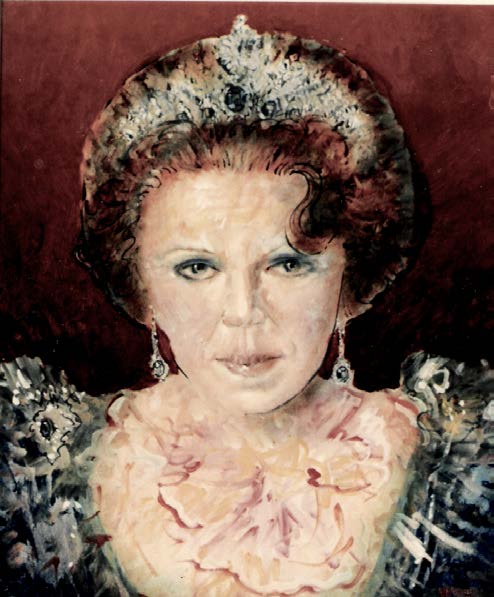
When I made an appeal to Van Baal, he did not show any signs
of independence at all. Since he failed in his responsibility to re-
solve this military intelligence dispute involving him and his wife,
the question is how Van Baal passed his screening. What was it that
made the mivd consider this highly controversial figure to be suit-
able as the trustee of the Armed Forces? Was it perhaps the inten-
tion to appoint an overseer who could be put under pressure if the
need arose?
During the information meeting at the naval base in Amsterdam,
it was pointed out that when recruits join the military, they swear
allegiance to the Queen, promise to obey the laws and submit to
military discipline. The Armed Forces gave me a special note on
these core values at the time. 123 It states that the Oath of Allegiance is not a relic of the days of yore: ‘Absolute loyalty may seem old-fashioned, but some things are unchangeable. Loyalty is one of
them. You can neither argue with that nor discuss it.’ The text
continues:
loyalty to the king (queen)
means allegiance to the constitution-
al monarch who, as such, represents
the supreme authority of the state. It
means loyalty to the legitimate gov-
ernment, a government that must be
assured of the loyalty of its Defence
organisation under all circumstanc-
es — not only in exceptional circum-
stances, when the security of our
country or the Alliance is at stake,
State portrait H.M. Beatrix
but also in seemingly insignificant
day-to-day matters.
obedience to the law should be
self-evident. In fact, it is the duty of
every citizen in a democratic con-
stitutional state. However, in times
122
The Cover-Up General
of war, military personnel can be given authority by the govern-
ment from which no small powers can be derived. This means
that a soldier should be a role model in upholding the law. How-
ever, the law also imposes an obligation not to exceed the limits
of the powers granted. This protects both the soldier and the
society from the abuse of power.
military law is the adherence to a system of logical rules
of conduct to ensure the functioning of the Armed Forces in
all circumstances. In addition to the law, military law protects
everyone’s duties and rights. Military law applies to every sol-
dier regardless of rank or position. …
The principles embodied within the Oath of Allegiance are occa-
sionally far removed from actual military practice. In this affair,
for example, Van Baal seems to have broken the oath on all three
counts: he misled the minister despite swearing unconditional al-
legiance to the legitimate government. He also appears to have ex-
ceeded his authority. If Van Baal is the one who ordered his wife’s
undercover operation, it is impossible to reconcile this with the
laws and rules of conduct that a military man — regardless of rank
or position — must abide by.
The only one who has shown loyalty in this operation is Van
Baal’s wife — and that is her marital loyalty. Her role deserves
some respect. Although Ina has deceived everyone by keeping
her identity and her criminal intentions to herself, there is some-
thing admirable about the commitment she has shown to her hus-
band. Another wife would have said: all that shit at work, sort it
out yourself.
This book sheds light on the many mistakes Ina made during
her operation. However, it remains to be seen how much of this
can be blamed on a devoted wife. It turns out that Ina was a failure
as a secret agent because she was not suited to the job — she could
not even cope with the simple work of the Telesales Department.
It is fortunate for her that she was deployed to the peaceful city
of Delft. If Ina had been caught with her notebook during an oper-
ation in Damascus, she might not have been able to retell her story.
Chapter Eleven | Integrity
123
The mid overstepped its bounds in 1998 when it banned a love
affair between two citizens: Jasper was ordered to break up with
me. This preposterous course of action raises the question of how
consistent the Dutch government has been in this affair in dealing
with personal relationships, and how military intelligence deals
with relationships that are actually forbidden. Has Ina ever been
made aware of the fact that a soldier is not allowed to have a rela-
tionship with one of his subordinates? And did the mid order her to
leave her husband because of antecedents that are so serious that
he does not dare to talk to her about it?
Lucas enlightens me on how Ina was brought into the MoD as
an agent: General Van Baal, as Deputy Chief of Defence Staff, put
his wife forward because of the shortage of staff at the mid and be-
cause Ina herself had ambitions to return to work. Besides, Ina was
considered suitable to observe Monica, simply because Monica did
not know her.
It is better for the standing of the army if it recruits its person-
nel on the basis of their qualities. In addition, when married cou-
ples who are closely associated with the government start working
for each other, it raises in this case questions such as: what pos-
sesses a general when he secretly uses his wife as a spy to further
his own career? Did Ad turn to his wife because this operation is
so scandalous that he only dared entrust it to his own wife? Was
she perhaps the only one crazy enough to sacrifice herself for this
intelligence move?
Whether Monica should have been ordered to infiltrate Casema
is highly questionable. The mid can only carry out such an opera-
tion if the security of the State is at risk. That was not the case with
us. The Telesales department was not preparing terrorist attacks,
nor were we selling weapons of mass destruction over the phone.
No less questionable than Monica’s infiltration is Ina’s. She
should never have been ordered to do this. In a modern army, the
loyalty that she has shown to her husband is completely out of
place.
In addition to his wife, General Van Baal’s aunt also contribut-
ed to the success of this secret operation. Thanks to the offer of a
124
The Cover-Up General
place to stay, her niece did not have to be in traffic jams every day.
This family support is in itself commendable. But it does not reflect
the reality of the country in which we live.
In the Netherlands, a Deputy Chief of Defence Staff should not
have secret operations run by his family members like some kind
of a Mafia boss. Nor should he set a trap to settle a tribal struggle
at the MoD in his favour. The Defence Staff must concentrate on
legitimate operations for which our men are trained.
Nevertheless, it is easy to see why Van Baal made strange leaps.
If, as a general, you failed in your mission to protect an enclave
— resulting in a genocide — then it is extremely painful to have to
face that failure. There’s no way to justify that Van Baal tried to con-
ceal these antecedents with cunning, but it’s explainable because
the trauma of Srebrenica embarrasses him to an unprecedented
degree.
The fact is that on 11 July 1995, Deputy Army Commander-in-
Chief Ad van Baal and Chief of Defence Staff Henk van den Bree-
men made an extremely disconcerting demand. The evening after
the fall of Srebrenica, both visited Bernard Janvier — the French
Commander-in-Chief of the un peacekeeping force — in Zagreb.
Janvier had just given Dutchbat the order to stay put: the Bos-
niaks had to be protected. However, the two Dutchmen put on the
table the demand that Dutchbat should leave the enclave by the
next day.124
When it mattered most, Generals Van Baal and Van den Bree-
men pleaded passionately for the withdrawal of the Dutch troops.
They fought tooth and nail to protect their boys. It was as if the
Deputy Commander-in-Chief of the Land Forces was proving
his unconditional loyalty to his men at the climactic moment of
the tragedy.
The Royal Netherlands Army should have ordered its men to
protect the civilians of Srebrenica from the Bosnian Serbs. Without
question, moreover, Dutchbat should have been motivated enough
and spirited enough to accomplish this difficult combat task. But
their priority was to ensure their own safety and survival. Dutchbat
hardly fought at all — it saved its own skin. Our country handed
Chapter Eleven | Integrity
125

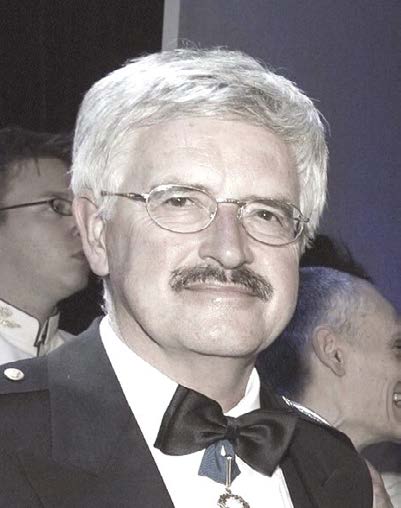
over part of a population to its arch-enemy. The Bosniak men were
then murdered by the Serb military.
‘The disturbing fact is that at no time did the Dutch battalion
in Srebrenica offer resistance to the Serbs,’ a French parliamen-
tary investigatory commission reported in 2001. 125 In the report,
officers also pointed out that Dutchbat was ordered to fight:126 ‘If there had been four hundred French in Srebrenica, things would
have been very different.’
It is essential that the Minister of Defence has all relevant informa-
tion. Of course, he should have received the prints of the infamous
photographic film. After all, they prove that Dutchbat collaborated
with the Serbs on the deportation of the Bosniaks and that many
had already been killed by 13 July 1995 — genocide was imminent.
Nevertheless, the photo roll was covered up. The Minister, who is
accountable to Parliament, was misled by Van Baal.
The eight thousand murders on Bosniaks
were no reason for Dutch military intelligence
to deprive Van Baal — who was partly respon-
sible for their protection — of his Declaration
of No Objection. Nor was there any objection
to his misleading the Minister about the facts
of the genocide. On the contrary, despite his
treachery, Van Baal is allowed to advise the
Minister as Inspector General of the Armed
General Van Baal
Forces. Despite the genocide, the mivd con-
siders him suitable as igk to restore mutual
trust in personal matters.
As Van Baal referred me to the Minister of
Defence, I write to the latter on 1 September
2007.127 In the letter, I talk about the Casema
sneak-in and the misbehaviour of the two De-
fence women, who I mention by name for the
first time.
The following questions are also asked:
126
The Cover-Up General
‘Your Excellency, are your generals allowed to use criminal means
in a civilian industry in our country to pursue personal interests
such as covering up for the Minister criticism of the concealment
of photographs of serious failings in Srebrenica? Are you fully in-
formed yourself? Have you already seen the pictures?’
After more than four months, Permanent Secretary Ton Annink
of the MoD gives an evasive reply.128 He does not address the ques-
tions raised, claiming that my letter does not raise ‘any new facts
or circumstances’.
Due to the continuing misunderstandings with the government,
in 2009 I begin to elaborate on my account of the Casema intrigues.
The aim is to distribute it widely, including to legislators. Thus,
on 7 March 2010, I hand it over to Senator Britta Böhler, 129 whose
law firm is representing the former Dutchbat interpreter Hasan
Nuhanović.
On New Year’s Day 2011, the storage shed of my apartment goes
up in flames; there is a risk of explosion.130 It is all the more frightening for residents when the fire brigade claims it was arson. A link
with this affair is unlikely, but cannot be ruled out: the perpetrator
is never caught. The originals of my dossier have been lost, 131 but fortunately digital copies exist at various addresses.
A year later, I meet socially critical publisher Paul de Ridder,
who wants to publish my account in book form. The contact is
pleasant, but we go our separate ways.
In 2006, De Ridder published the non-fiction book Een man te-
gen de Staat (‘One man against the State’),132 about whistle-blower Spijkers, who unfortunately sees his life as an excruciating ordeal. The accusations made in the book against politicians and
high-ranking military officers had led to several court cases. 133
The publisher is afraid that my military exposé will also result
in a costly legal battle and is looking for a lawyer to review the
manuscript at a reasonable price. But it seems difficult to find the
right one.
I understand his caution. Back in 1999, Lucas warned that when
a testimony is published, it runs the risk of being attacked because
of a small detail that is not correct.
Chapter Eleven | Integrity
127
Finally, in 2013, I end up with the Amsterdam-based publisher
Coen Borgman of SpeakEasy Publisher & Agency. Although I insist
that the manuscript be checked by a lawyer,134 he does not think it
necessary. He fully supports the content and says he will take the
risk, partly because I correctly apply the principle of rebuttal.
I include General Van Baal’s and Monica’s reactions to this affair
in full in this book. For example, pages 117–120 show Van Baal’s evasive response after I wrote to him as igk. My announcement
that I would make this scandal public — if I had to — did not provoke
any reaction.
On 11 February 1999, Monica was interrogated by counter-
intelligence Major De Ruyter about the events in Casema. Her full
testimony can be found on pages 57–58. I cannot ask her for a new response. After all, to do this I would have to contact her,
which she had strictly forbidden me to do on 13 August 1998.
As so many years have passed, I nevertheless consider sending
an e-mail to Monica. But she seems to be untraceable. There are
two different spellings of her surname: the spelling with an ‘i’, used
by the Minister of Defence and others in an official letter,135 and
the spelling with the letters ‘ij’, typed by Monica herself in a fax to
the National Ombudsman and signed by her.136 On doing an Inter-
net search neither spelling produces results concerning her.
The exposé would benefit from the views of former Minister
Frank de Grave. I write to him: ‘Would you like to read my man-
uscript and perhaps write a foreword?’ I let him know that I have
not written it out of spite. ‘Nor do I want to start any bizarre legal
proceedings. However, from a historical point of view, I think it is
important that this story receives some attention so that it can be
brought to a conclusion’.137
Yet, the political leader responsible at the time does not want to
play a role in this conclusion: ‘Much as I share your view that his-
tory should be written, I consider my involvement in that event too
remote and too long ago to respond positively to your request.’ 138
The Dutch MoD wants anyone who is to publish a book about
the Armed Forces to first submit it for review. After all, no sensitive
128
The Cover-Up General
information should be published that could play into the hands of
the enemy. 139 As a Dutchman, I naturally want to comply with this
precaution.
In case I am asked, I am willing to black out passages, even if
the request is not legitimate. Redacted lines within the book such
as these
will arouse the curiosity of the
public, no matter what, American copywriter Robert Preece told
me during a collegial conversation in October 2013.140 He is referring to former cia agent Valerie Plame’s memoir, Fair Game. 141
It was the many censored passages in it that attracted attention,
while the outlines of what her spy agency chose to withhold from
the world nevertheless leaked out in the epilogue.
In March 2014, partly in response to igk Van Baal’s earlier re-
quest, I again contact the Minister of Defence: the manuscript of
The Cover-up General goes to Minister Jeanine Hennis with a request
for a reply.142 However, she does not respond.
According to Article 98 of the Dutch Criminal Code, one vio-
lates state secrets if one ‘knows or should reasonably suspect’ that
‘secrecy is required by the interests of the State or its Allies’. The
penalty is up to six years in prison. Fortunately, this is not an issue
here, as the minister is not ordering me to delete passages from
my work.
Whatever the reason for her silence, by not responding to the
preview, Hennis is implicitly giving the green light. Her position
suggests that she has no objections to revealing this espionage
scandal, exposing (former) secret agents, and publishing their
names. Nor does she think, apparently, that the revelation of the
dgse’s friendly service will damage relations with Paris.
The manuscript is also presented to Home Secretary Ronald
Plasterk,143 but again there is no reaction. In the past, I was warned to keep absolutely silent about the bvd’s escort project for diplomats. Apparently, in 2014, the Minister seems to have no problem
with this becoming known through publication in the Netherlands,
and, given the international nature of the issue, slowly beyond. He
Chapter Eleven | Integrity
129

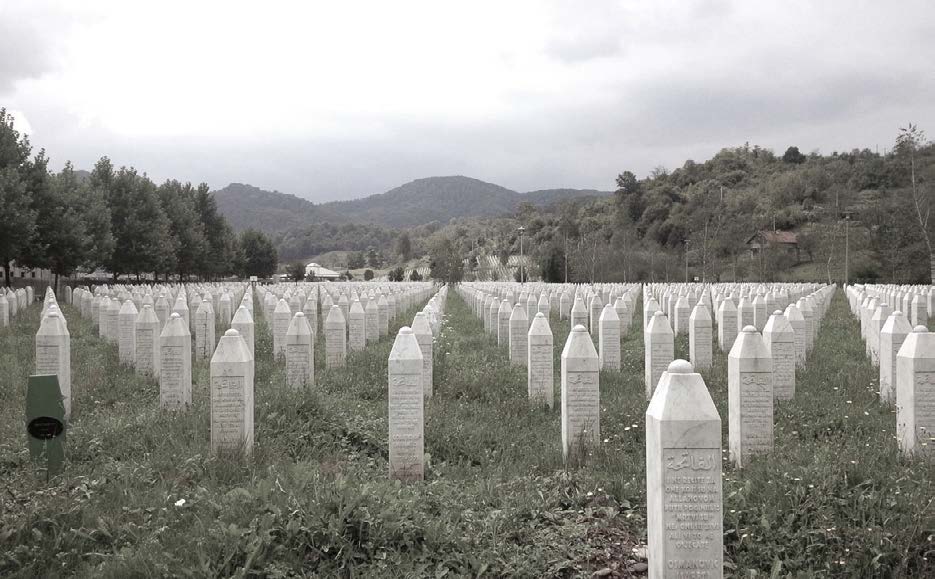
also does not object to my description of my role as an unofficial
bvd informant in the years 1999–2001.
According to the bvd, the aim of the disruption measures was
to thwart me and undermine my testimony. Is this strategy still
valid? If I publish, do I risk being antagonised again? The State is
keeping me in the dark by not responding.
One possible explanation for the Ministers’ stonewalling is the
policy that if you are being sharply criticised, it is better to wait
quietly until it passes. But let’s not speculate. Not a single letter in
the manuscript needs to be changed — all right, you can have it as
you like.
Yet the manuscript does not go straight to the printer. To ensure
that this daring publication would carry more weight and strength-
en the debutant’s position, the editors first submit the pdf to a
number of eminent people. On this, I receive several recommenda-
tions, including one from Jan Pronk,144 who, as minister, was partly responsible for the protection of Srebrenica.
Srebrenica Genocide Cemetry
For the editors, a worldly focus is a matter of course. Finding the
right tone, however, is more difficult for the author, especially
when writing about a highly charged subject like genocide. In or-
der to achieve this proper tone, in September 2014 I fly to Bosnia
— my first trip to the region. There I visit the Srebrenica Memorial
Centre. 145
130
The Cover-Up General
It is only among the endless rows of graves that it becomes
clear that genocide is not an abstract historical fact. We are dealing
with thousands of people, all with their own stories and feelings,
suddenly torn from their lives. Next to prayer columns that reject
revenge as narrow-minded, but insist on hope and justice, I offer
flowers to honour these silent witnesses.
Chapter Eleven | Integrity
131
CHAPTER TWELVE |
CHAPTER 12
Excellency
Dutch intelligence never resolved this matter. As I have been
told, the State considers my personal interest subordinate
to the national interest.
Well, in April 1998, at the naval base in Amsterdam, I was in-
formed that a soldier risks his life for his country. Although the
officer laughed a little at his theatrical choice of words, he asked
his audience to think seriously about it. I took up the Royal Neth-
erlands Navy’s request. I decided to dedicate myself to the tasks of
the Armed Forces, to defend the national interest, and promote the
international rule of law — whatever the consequences.
I have come to realise that the MoD scandal described here cen-
tres on the misappropriation of photographs of the Srebrenica trag-
edy, resulting thereby in the withholding of evidence of war crimes.
Everyone — the government, parliament, the Dutch people and the
international community — are being deceived. This is to the detri-
ment of our democratic rule of law and the international legal order.
Should I support keeping this cover-up going? Absolutely not.
The citizens of this country and — more importantly — the
widows of Srebrenica are entitled to the truth. Our country should
not be misled by the MoD. The government, consisting of the mon-
arch and the ministers, must exercise supreme authority over the
Armed Forces and oblige its officials to show courage and openness.
This cover-up shows that the MoD has become disconnected
from the Dutch legal system, its own core values, and its mission.
Meanwhile, I have come to wonder how important it is to be re-
habilitated by this organisation. Given the — not serious — way in
which it is acting in this affair, on reflection I do not see the impor-
tance of this for me personally.
132
The Cover-Up General
I will no longer ask the Minister of Defence for rehabilitation.
It makes more sense for the Minister to concentrate on restoring
the reputation and credibility of the intelligence service. Let’s face
it: over the years, many of the protagonists in this affair have lost
prestige and position. Confidentiality and integrity issues have bro-
ken MoD officials, who I have witnessed crying and shaking with
fear at work.
In this book I have processed my experiences of this Armed
Forces adventure. Despite the disruption measures, I have allowed
my forgiveness to prevail. This publication is not about revenge. A
chief incentive for writing this testimony is to hold up a mirror to
the Defence Ministry, for which my grandfather worked as a mem-
ber of the Court Martial. After all, a government scandal linked to
genocide is no small matter and should not be covered up.
In July 1998, a military intelligence officer approached me. She
pursued me persistently, encouraging me to delve into the photo
roll ‘riot’ and asking me to write intelligence reports for the deploy-
ment of Armed Forces personnel. I had to start mapping the op-
posing parties.
I hereby comply with the request of the Ministry of Defence.
In The Cover-Up General, I describe the lengths to which Van Baal
would go to protect his honour. In doing so, he ignores the fact that
his personal interest is secondary to the interest of our country.
Honourable Minister, at your service!
Chapter Twelve | Excellency
133

134
The Cover-Up General








Part
P T
art w
T o
w
2014
201
4– 2016
‘What is printed once belongs to the whole world for
all eternity. No one has the right to destroy it.’
— Gotthold Ephraim Lessing

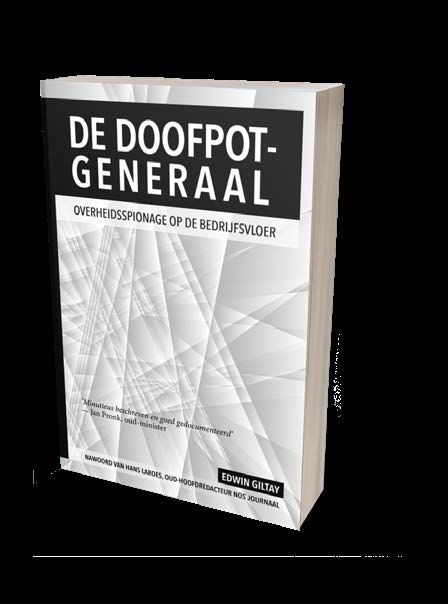
CHAPTER THIRTEEN |
CHAPTER 13
Feedback
On 26 November 2014, Borgman publish-
es The Cover-up General. He is not both-
ered by the fact that a fire was set outside
his flat the day before — it seems to have nothing
to do with him.146 In the restaurant-café of the
daily newspaper nrc Handelsblad in Amsterdam,
author Philip Dröge interviews me at the book
launch in the presence of my dear parents, rel-
atives, friends, a dozen fellow editors and oth-
1st Edition
er interested people. 147 Investigative journalist
Brenno de Winter receives the first copy.
A review by crime reporter Silvan Schoonhoven, in which De
Winter calls for the government to be open about this cover-up,
appears in various newspapers the next day. 148 Once again I ask the Minister of Defence and the Home Secretary for clarification. 149, 150
Once again to no effect. With the book already in the bookshops,
Secretary-General Richard van Zwol responds on behalf of Home
Secretary Plasterk, refusing to comment on the manuscript. 151
However, for a moment there is hope. At my request, on 2
March 2015, Van Zwol orders, on behalf of Plasterk, that the whole
affair of The Cover-up General be investigated — a task for the Review
Committee on the Intelligence and Security Services (ctivd). He
has already forwarded my complaints to this oversight agency.152
Two weeks later, I speak to researcher Marvin Aaron at the ctivd
office about, among other things, Lieutenant Rutten’s photograph-
ic film. 153 He promises to include this issue in the investigation.
However, an astonishing letter arrives on 17 April: Permanent
Secretary Van Zwol reports that he no longer wants the ctivd to
136
The Cover-Up General
investigate the affair.154 His letter lacks any substantive explanation or information about the preliminary findings of the inquiry,
which should also have covered the bvd’s escort project. A few days
later, Defence Minister Hennis announces that she also refuses to
investigate the intelligence scandal. 155
What happened was that the ctivd boldly sent the complaint it
had to investigate back to Plasterk, saying that the minister ‘has no
duty to investigate’. 156 Rob Bertholee, the head of bvd’s successor aivd, then gave Van Zwol the highly unusual advice in a memorandum ‘not to take up the complaint after all.’ 157
‘Fumbling senior officials, failing controls,’ rages the Dutch
opinion weekly Nieuwe Revu in a four-star review of The Cover-up
General.158 Checkpoint, the MoD’s veterans’ magazine, is also promoting the book to its readers. 159 After an enthusiastic review by
their purchasing organisation,160 public libraries across the coun-
try add the book to their collections. An audio-book for the blind
and visually impaired is also being published.161 Current affairs programme EenVandaag wants a radio interview? 162 Will do.
The government does not want to hear it, but more and more
people do. Members of Parliament, from both the left and the
right, are also starting to follow the case. Politicians, journalists
and other prominent figures are sending messages of support.
At the book launch I met lawyer Simon van der Sluijs. He and
his colleague Marco Gerritsen invite me to their office in Haar-
lem.163 The two are suing the Dutch State on behalf of the Mothers
of Srebrenica, and include a short passage on The Cover-up General
in their pleadings of 7 July 2015.164 The role of my book in their
billion-dollar lawsuit is very modest. Nevertheless, the testimony
helps them, along with much other evidence, to support the notion
that the Armed Forces bear co-responsibility for the genocide and
have covered up evidence of it.
During the fall, off-duty Colonel Charlef Brantz was the direct
superior of Dutchbat Commander Thom Karremans as Acting
Commander of the North-East Bosnia sector. In a first reaction
to the book, he concludes with irony that I have become as much
a friend of the Van Baals as he is. He also sends candid e-mails
Chapter Thirteen | Feedback
137
about his very difficult relationship with his boss Ad van Baal and
his wife. 165
Brantz discloses that he had to put the latter in her place several
times for overstepping her husband’s powers.166 In 1994, for exam-
ple, she approached the secretary of General F. Pollé, Command-
er of the Army Emergency Staff. Her request: a government car.
As Brantz was in charge of deciding on such requests at the time
and happened to be waiting for Pollé in the room of the secretary,
the latter passed on Mrs Van Baal’s request directly to him. Brantz
recounts:
When I asked her why she needed the official car, the answer
was ‘to go shopping’. My answer was short: ‘No’. How tedious.
Brantz suspects that she wanted a government car to show her hus-
band’s importance in her home town. He also says that his refusal
was followed by an angry phone call: where did he get the nerve to
disregard that request? 167 Brantz: ‘That wasn’t the only time we had a row in 1994.’ 168
Derk Zwaan served as a soldier during the fall of Srebrenica
and later became president of the veterans’ association Dutchbat
3. Like many veterans, he no longer believes the official account of
the fall. He has noticed over the past twenty years that ‘when the
name Srebrenica comes up, people in the government get anxious.’
He is therefore grateful to anyone who shows that there is more to
the fall of Srebrenica than the official account. 169
A reader working for the Military Intelligence and Security Ser-
vice (mivd), who asked me to guarantee his anonymity, put it in an
encrypted e-mail as follows: ‘Over the years I have learned that we
are not inferior to other countries. Even if we do it in an amateurish
way. All the stories you hear that make you think: no, that can’t be
true, not in the Netherlands — they’re generally true.’ 170
An experienced criminal investigator also takes time to respond
to the exposé. He confirms that disruption measures are carried
out in a characteristic way, that is, such that it will be difficult for
the intimidated person to prove it afterwards.
138
The Cover-Up General
The policeman reveals that — to his own dismay — some of his
colleagues do indeed in a peculiar way harass citizens they con-
sider to be a nuisance. He gives the example of such a person be-
ing followed by an unknown man wearing a raincoat as he walks
down the street alone at night in the dark. He may then be told to
withdraw his complaint against the government, at which point the
phantom disappears.
As a result, the person feels very threatened and stressed, the
investigator says. However, he cannot take legal action because
there are no witnesses or evidence of the harassment. Further-
more, there is no criminal element to the threat, as there was no
threat of death, physical violence or any other tangible threat. And
if he does tell his story, there is a chance that he will be called par-
anoid. After all, it is not widely known that certain officials use psy-
chological warfare deliberately to cause citizens sleepless nights.
To add to the tension, the government will not stop at just one
incident. After a few weeks, the intimidating official will repeat the
ritual, this time flanked by several ‘men in raincoats’, so that the
citizen would be frightened even more and would not dare to pro-
ceed with his complaint.
Derk Zwaan is in a position to speak at first-hand about such
intimidation. The Srebrenica veteran has been locked in a legal
battle with the MoD over compensation for years. He told public
broadcaster nos: ‘Things have happened to intimidate me. For ex-
ample, I was once tapped on the shoulder by a stranger in the street
who said: “Stop these legal proceedings about Srebrenica”. And my
lawyer was also bugged. That’s all on the record.’ 171
In chat conversations, Zwaan says that he has been observed by
the Special Security Operations Brigade (Dutch: ‘Brigade Speciale
Beveiligingsopdrachten’) of the Royal Military Police, and that peo-
ple have also been approached at his workplace. 172
Zwaan confirms that this intimidation is part of the standard
disruption measures employed by our intelligence services. As ev-
idence, he shows the manual Informatie en Opsporing (‘Information
and Investigation’). In this handbook, criminal investigator Dirk
van der Bel and his co-authors provide an insight into the work of
Chapter Thirteen | Feedback
139
the secret agents of the aivd and mivd, 173 which is legitimised by the Wet op de inlichtingen- en veiligheidsdiensten 2002 (‘Intelligence
and Security Services Act 2002’).
In addition to collecting data, an agent may be tasked with pro-
moting or taking measures to protect the interests to be served
by the service. [… This] concerns the power to take preventive
measures (or have them taken) with the aim of discouraging or
preventing certain activities that are antidemocratic or danger-
ous to or otherwise directed against the interests of the state,
as listed in the ‘Wet op de inlichtingen- en veiligheidsdiensten
2002’. These disruption measures include, for example, harass-
ing or talking to targets, spreading disinformation, or frustrat-
ing planned acts of violence.
The aim of the state’s disruption measures is to ‘knock down the
pillars of your life: your finances, your relationship, your job and
your circle of friends. If one pillar falls, the chances of a domino
effect are considerable. They put so much pressure on you that you
end your legal case or even commit suicide,’ says Zwaan. The aim is
to ‘disrupt, exhaust and silence’ you.
The un Convention against Torture prohibits any act by which
severe pain or suffering, whether physical or mental, is intention-
ally inflicted by or with the consent of a public official for such
purposes as obtaining information, punishment, intimidation or
coercion.174 Are disruption measures contrary to this treaty ratified by the Netherlands?
Fast-forwarding to 2021, I contact Amnesty International in Am-
sterdam to ask about the legality of the state’s disruption measures.
But senior press officer Ruud Bosgraaf is reluctant to comment:
‘The question of whether a specific case violates the un Conven-
tion against Torture is not for a human rights organisation like Am-
nesty, but for the courts.’ 175
The Netherlands Helsinki Committee (nhc) also reacts cau-
tiously. In a sympathetic e-mail, director Pepijn Gerrits writes: ‘We
have examined your request and read the documents provided.
140
The Cover-Up General
They are interesting and also relevant to a number of social dis-
cussions … However, they are also issues that we at the nhc and
within our programmes are not currently (and have not been in the
past) directly involved with, and therefore have no expertise in.’ 176
The lack of expertise on disruption measures is remarkable giv-
en the significant frequency with which the Dutch State uses them.
There is irrefutable evidence that Zwaan’s experience is not unique
— I know all about it. And we are not alone. Zwaan: ‘Look at Fred
Spijkers and [Dutchbat veteran] Dave Maat — the same thing hap-
pened to them!’ 177’
Chapter Thirteen | Feedback
141
CHAPTER FOURTEEN |
CHAPTER 14
Photo rolls
As Lieutenant Ron Rutten and other Dutchbat soldiers un-
derstood, part of the battalion’s role in Srebrenica was to
act as observers. As a result, they photographed and filmed
the war crimes they saw.
This is also true of the veteran Remko de Bruijne, whom I inter-
viewed for a background article in geopolitical magazine Novini.178
He insists that he was one of the few soldiers who fought the Serb
troops — until he ran out of ammunition. When the city fell, he was
given the task of escorting buses of evacuees into Muslim territory.
The soldier 1st class was then taken hostage by Serbian soldiers.
His equipment and disposable cameras were taken from him.
Housed in Novo Kasaba, he tried in vain to free dozens of Muslims
before they were executed. When he was released after three days,
he only managed to steal his cameras back.
On arrival in Zagreb, his cameras were once again under pur-
suit: this time by the ‘mid, the Military Police and British Intelli-
gence.’ By this time, De Bruijne had heard from colleagues that
photo rolls and documentation had been confiscated. ‘During my
questioning they asked me if I had any photographs. I said no.’
At the interrogation, he was told to sign a non-disclosure agree-
ment, but he refused resolutely. This got him into more trouble.
The Dutchbat soldiers who turned in the photos would never see
them again. Back home, De Bruijne had his rolls developed at the
local photo shop: ‘They all came out fine.’
It is not only Rutten’s roll of film that has disappeared, writes
Colonel Charlef Brantz to me, but also those of Adjutant Berend
Oostveen, Ronald Geval of the bomb squad, and an unnamed
Dutchbat soldier who took telephoto shots from the main gate. 179
142
The Cover-Up General
Lawyer Klaas Arjen Krikke, who has represented former Dutch-
bat soldiers, confirms to the Dutch news agency anp that photos
of them were destroyed or confiscated by the mid at the behest of
senior Defence officials: ‘Dutchbat soldiers were put under pres-
sure not to reveal this.’ 180 This conduct is inconsistent with criminal law, which sees not only officials prohibited from intentionally
misappropriating or destroying evidence, or rendering it inadmis-
sible, but decrees that civil servants, including military personnel,
can also be imprisoned under the law if they allow these things
to happen. 181
‘The State insists: we hardly saw anything. The survivors deny
it, and it is also difficult for the Dutchbat soldiers because this si-
lence makes it difficult to come to terms with it,’ lawyer Marco Ger-
ritsen told the daily Trouw. 182
Chapter Fourteen | Photo Rolls
143
CHAPTER FIFTEEN |
CHAPTER 15
Warning letter
It is 24 July 2015. I am enjoying the summer at a terrace in Ant-
werp when I receive an e-mail with a pdf attachment. It turns
out to be a letter addressed to Coen Borgman. 183
When I read through it, I see that Monica is behind it. It is in-
deed her — only this time she spells her surname differently. In
Casema’s pantry in former days, she gave her full name for use by
yours truly. She then failed to point out that there was an alterna-
tive spelling with a ‘y’. She now uses this letter instead of the ‘i’ or ‘ij’
with which her name has been alternately spelled in this dossier.
It is worth noting that the name of intelligence officer De Ruy-
ter is also spelled differently every time. The Dutch Parliamentary
Commission of Inquiry on Srebrenica used the spelling ‘De Ruy-
ter’ when questioning him under oath on this subject in 2002. 184
However, the press release for an Argos broadcast in 2015 spells
his name as ‘De Ruijter’,185 while the radio programme used the spelling with a ‘y’ in a transcription of an earlier broadcast. He was
also identified here as counter-intelligence Major Rob de Ruyter
and listed with his liaison officer E. Rave.186 It was this duo who
produced the deceptive mid report in 1999 containing Monica’s in-
terrogation. However, in this report, signed by De Ruyter, he uses
the ‘ij’ variant.187
I haven’t heard from Monica in years. Does she want to come
to terms with her false accusations after all these years? Does she
want to apologise? Absolutely not. Eight months after the publi-
cation of The Cover-up General, Monica demands that the book be
banned and recalled.
The letter is a warning letter from T.G.F. Lourents of the legal
expenses insurance company das, alleging numerous inaccuracies
144
The Cover-Up General
in the book. I reproduce it here in full, excluding the linguistic er-
rors in the Dutch original:188
Dear Mr Borgman,
To me has come:
Ms [Monica]
with a request for assistance regarding the following matter.
Ms [Monica] informed me that the book ‘The Cover-Up Gen-
eral’ was published by SpeakEasy. …
From the introduction I quote the author Edwin Giltay: ‘Noth-
ing in this book is fiction.’ In this book, Client appears frequent-
ly. In that book, Giltay describes his experiences at his then
employer, Casema, where Client was also employed. Despite
the fact that the book is, according to Giltay, non-fiction, Giltay
ascribes a role to Client that does not correspond to reality.
Without claiming to be exhaustive, Client has alerted me to
numerous inaccuracies. Here are a few examples.
• In the book, Giltay points out that Client is aware of the fact
that the Srebrenica photo roll did not fail, but is held by the
mid.
• Client is portrayed in the book as an mid spy who had to
recruit Giltay.
• According to Giltay, Client was allegedly involved in a drug
deal in the Antilles and was spying in the process.
• Giltay states that during the investigation, which was
launched in response to a complaint Giltay made to the Om-
budsman, the Client’s statement was a lie.
• Giltay states in the book that Client worked for the mid for
seven years.
• According to Giltay, Ms [Monica] has reportedly been sacked
from the mid.
• According to Giltay, Mr [Monica] is said to have carried out
espionage work in the ‘Far East’.
• According to Giltay, Ms [Monica] is said to have carried out
Chapter Fifteen | Warning Letter
145
espionage work for former Mayor Deetman in The Hague.
• Giltay states in the book that Client would drive back and
forth from the Frederick Barracks with sensitive documents.
• Giltay states that Client had access to personal files and that
Client had seen the writer’s dossier.
• Giltay states that Client had taken painting lessons from his
uncle.
• Giltay states that Client was born in Scheveningen.
• Giltay states that Client once lived in Amsterdam.
• Client’s age of forty in 1998, is also incorrect.
Client considers that her honour and reputation have been
damaged by the many inaccuracies in this non-fiction book.
She is falsely portrayed as a spy who also has special knowl-
edge about the fate of the photo roll of Srebrenica. To this day,
Srebrenica is a sensitive issue that continues to occupy national
and international minds. Client believes that this publication
also jeopardises Client’s security. In the meantime, she has also
had to take steps to ensure her safety.
In the light of the foregoing, I consider that Client has a right
and an interest in seeking damages in addition to rectification.
In order to limit further damage, the client also seeks an injunc-
tion against further publication and a recall of the unsold cop-
ies of the book already distributed.
Please inform me within ten days of the date of this letter
that you are willing to accommodate the client by agreeing to,
or cooperating with the following:
• a rectification in a national daily newspaper,
• full compensation to Client,
• a ban on further publication (both physical reprint and
digital),
• a recall of copies already distributed.
If you do not respond, or do not respond in time, or do not re-
spond adequately, then it is my duty to take you and Mr Giltay to
court in order to achieve this.
146
The Cover-Up General
As this letter concerns the author, Edwin Giltay will also re-
ceive a copy at edwingiltay@gmail.com.
In order to protect the rights of Client, I hereby inform you
that if you do not respond within ten days of the date of this
letter, or if you do not accept the proposal, it will lapse in its
entirety. If this is the case, you may not rely on the contents of
this letter.
If you have any queries following this letter, please contact
me on 020–6518888.
I trust I have provided you with sufficient information and
look forward to hearing from you.
Kind regards,
das
T.G.F. Lourents, llm
The content of the letter is perplexing. The ‘inaccuracies’ raised
are not described as such in my book. Besides, how can Monica ac-
cuse me of making a mockery of the facts when she herself keeps
spelling her name differently? And then the comment about her
safety being at stake — she seems to be seeing ghosts.
I get in touch with Gerritsen and Van der Sluijs. In a long tele-
phone conversation, Gerritsen points out that I am in a strong po-
sition: for the courts, freedom of expression is very important and
judges are very reluctant to censor books. ‘You wrote your book
with a clear conscience for public debate. And since Monica has
attacked you in the past, of course you are allowed to defend your-
self in your book.’ 189
One of my friends has put forward an audacious hypothesis:
the state secretly set up Monica as a pawn to question my credibil-
ity. This theory is supported by the fact that my testimony is being
used in the trial of the Mothers of Srebrenica, which is somewhat
detrimental to the State.
Nevertheless, the hypothesis is questionable. Admittedly, Mon-
ica has attacked me in the past, but the Armed Forces would be
taking a big gamble if they were to rely on her fabrications again.
Chapter Fifteen | Warning Letter
147
Would the MoD dare to support her only covertly and, as it were,
behind her back?
When I present the warning letter to Colonel Brantz, he re-
marks: ‘Spies are used to making a mockery of reality and bending
it to suit their personal truth’. He finds it sad that Monica is threat-
ening to ban the book almost a year after its publication: it had al-
ready been on people’s book shelves for a long time. 190
Former minister Jan Pronk sees a silver lining in the situation,
he tells me by e-mail. The warning letter can also be regarded as
an opportunity to draw attention to the abuses that have been ob-
served. ‘That’s why you wrote the book.’ 191 That’s right — on the same day I contact investigative journalist Brenno de Winter.192 I give him the scoop and send him several documents in the dossier. 193
He examines the case and calls Lourents, who demanded a re-
sponse within ten days. But what is the matter? He is on holiday
and das cannot find a replacement at short notice.194 So there was
no need for the quick response time at all.
De Winter formulates eight questions. He e-mails them to a das
spokesman on 31 July:195
Dear Mr Wagenaar,
As discussed, I would like to put a few points on the table:
1. The demand is that the book be withdrawn from circulation.
Your client wanted no contact with Giltay, and the book
was submitted to the Ministry of Defence for comment and
response six months before publication. Wouldn’t it have
been appropriate to raise objections at this stage?
2. The book has already been launched on the market in 2014. Isn’t
it a bit late to be raising objections?
3. According to the author, a number of allegations have been
made against him by the claimant; he considers the
book to be his rebuttal (or reply). There also seems to be
documentation of this (some of which I have seen). I do not
read this in the letter. Can you give us your opinion on this?
148
The Cover-Up General
4. According to the letter from das: ‘Client is portrayed in the
book as an mid spy who had to recruit Giltay.’ Between 8
February 1999 and 12 February 1999, Ms [Monica] was
interviewed as part of an internal investigation. The result-
ing report states that she then said that she had indeed asked
Giltay to apply to the mid. Isn’t that the point of recruiting?
5. The letter from das says: ‘According to Giltay, Client was alleg-
edly involved in a drug deal in the Antilles and was spying in
the process.’ But that is not what the book says. …
6. I also notice that a number of claims are presented in a more
straightforward way than they are in the book (and some-
times they are not there at all). For example: the reference
to the Far East, the alleged spying for Deetman, the docu-
ments. Does das check such allegations before a claim is
made?
7. If there are threats, has a report actually been made or has ac-
tion been taken, as the public prosecutor’s office would nor-
mally do in such cases?
8. Does the claimant feel that the Ministry of Defence was negli-
gent in failing to consider the work from the point of view
of personal risk? Particularly now that it is clear that there
was a six-month gap between the submission of the full
manuscript and the publication of the book?
Yours faithfully,
Brenno de Winter
In the absence of a response, the news portal nu.nl publishes an
article by De Winter on 4 August without a rebuttal.196 Ten min-
utes later, a press release goes out. 197 Immediately, the editors of the popular tv talk show Jinek call. Do I want to be on the evening
show? Of course. But that’s not going to happen. In fact, Eva Jinek
also wants Monica on the show, but the latter declines the invita-
tion to tell her story.198
EenVandaag’s radio editors call too. The current affairs pro-
gramme would like to do a segment, on the condition that Monica
Chapter Fifteen | Warning Letter
149
or das provide a response.199 Her demand for a rectification shows that she is not afraid of publicity, yet nonetheless she is withdraw-ing. The EenVandaag editorial board comments on the retreat with
the exclamation: ‘Very strange!’ 200
As I have not been contacted directly by das, it is not for me to
respond to the claims made by the legal service provider. That’s
up to SpeakEasy’s Coen Borgman, who tells the press he’s not wor-
ried. Literary magazine Boekblad writes: ‘According to Borgman,
the ball is in the accuser’s court and he faces the outcome with
confidence.’ 201
On a less pleasant note, Uncle Frans — who is now suffering
from dementia — was harassed in his nursing home on 6 August. A
visitor, who introduced herself as Anita and claimed to be a friend,
subjected Frans to a barrage of questions. A nurse, who was also
awkwardly questioned, did not trust her at all. Neither did the se-
curity guard she called in. 202
I share this suspicion, as there is no Anita in Frans’ circle of
friends and mailing list. 203 Given the description of the troublemaker, it could have been Monica.
While former colleagues of Ad van Baal privately praise my por-
trayal of his wife in The Cover-up General, the protagonist remained
silent. In late August, however, this situation takes a surprising
turn. General Van Baal — now off duty — comes out of his shell.
Exactly nine months after the book’s launch, an e-mail arrives
from editor-in-chief Fred Lardenoye: ‘In the next Checkpoint we
will report on the former mid employee’s objections and your re-
sponse to her. We will also report that Lieutenant General Van Baal
echoes these criticisms and denies that his wife ever worked for
the mid.’ 204
Excuse me — has Van Baal even read the book? Nowhere does
it say that his wife works for the mid. After all, there are several
secret services.
The comment made by the off-duty general suggests that I was
wrong. I hereby counter this criticism. Following Monica, Van Baal
claims that the book is not based on facts, but then as an example
150
The Cover-Up General
of a purported error provides a detail which arises clearly from his
own misreading.
Van Baal’s indignation is misplaced, his denial unfounded.
He might as well have thrown in that his wife never worked at
McDonald’s.
It is easy for Van Baal to cry out, without any evidence or jus-
tification, that I am wrong and therefore he is not to blame. The
constructive way would be simply to explain the following: why his
wife joined Casema in the first place, and why under her maiden
name? Why did she respond so cagily to legitimate questions about
it? Why did she retreat to the toilet when a spy, taking photographs,
entered Casema’s premises? Was she properly vetted for her obser-
vation work?
Monica claims that there are details in the book that are not
there. How can a general be so unwise as to join in this complete-
ly unfounded criticism? For the record, Van Baal commented on
Monica as Inspector General of the Armed Forces in 2004. He then
distanced himself from her criticism of me — I have that letter in
black and white.205 Why the turnaround? Does he now agree with
her criticism because he wants this book, in which he is the main
character, to be banned?
According to Monica, Srebrenica veterans might do something
to her because of the publication,206 by which statement she por-
trays them as potentially dangerous idiots. Off-duty General Van
Baal then reinforces this harmful image in the media by support-
ing her criticism. As a former Commander-in-Chief of the Land
Forces, he thus indirectly stigmatises his own men.
In reality, however, Van Baal is surely not concerned with the
danger Monica claims to be in. Nor is there any real, acute danger.
No, it is not Monica’s life that is at stake here, but Van Baal’s reputa-
tion. A security risk is being used as a pretext to restrict freedom of
expression and the print press regarding Srebrenica.
On 19 September, my author tour takes me to the historic city of
Maastricht. A 13th-century Gothic church, once home to a monastic
order that burned heterodox books, now houses a large bookshop
Chapter Fifteen | Warning Letter
151
called Dominicanen. Before the journalist Silvan Schoonhoven in-
terviews me in the choir in front of an audience,207 we have a chat
in the pantry.
He tells me that he has tried to call the Van Baals about ten
times for an article he is writing. He especially wants to speak to
Mrs Van Baal himself, but he keeps getting voice-mail. He has left a
message — but no call back.
152
The Cover-Up General
CHAPTER SIXTEEN |
CHAPTER 16
Book ban
On 24 July 2015, das threatened to sue if Coen Borgman ‘did
not respond, or did not respond in time, or did not respond
adequately’. However, after Brenno de Winter undercut
their peculiar claims, it was not expected that das would make any
further moves.
On 7 October, 75 days after the summons, a surprise e-mail ar-
rives from Thunnissen of stv Mahieu Lawyers. It turns out that
das has outsourced the case to him. He says he is preparing pre-
liminary proceedings against Borgman and myself, for which he
requests our availability for the court hearing. 208
I immediately set to work on our defence. With the help of Mar-
co Gerritsen, a helpful law firm specialising in publishing law is
found the very same day: Boekx Lawyers in Amsterdam. 209
Meanwhile, Borgman starts talking to Monica and Thunnissen.
This is the right thing to do, because as a publisher he has decided
to take the risk of publication. But he does not reveal what exactly
is being discussed.210 A few days later, Thunnissen only challenges
me: Monica versus Giltay is imminent. So I am on my own. The
trial is scheduled on 27 November. 211
The nine-page summons is largely an elaboration of the warn-
ing letter. Monica is asking the District Court of The Hague by way
of an emergency procedure to order me to publish a rectification
in three national newspapers. The text — which puts her real name
in the spotlight — is already there: ‘In my book, The Cover-up Gen-
eral, I gave [Monica] a major role. Everything I wrote about her is
false. It is not non-fiction; it is pure fiction that I should not have
published without her permission.’
The summons continues: ‘Giltay is also being sued for damages,
Chapter Sixteen | Book Ban
153
which will be determined in the main proceedings, and for which
an advance payment of € 10,000 is being sought in these prelimi-
nary proceedings. It is further demanded that Giltay refrain from
having his book reprinted by anyone, and also removes and keeps
removed the chapters of the book that have appeared on the Inter-
net, and finally that he refrain from any further promotion of his
book …, all this on pain of a fine of € 1,000 per day.’
I am not impressed. The sums are extravagant, the demand
for rectification poorly considered. Although Monica complains
about her safety, she insists on publicity that could well see her
past as a spy become a national talking point. As with Uncle Frans,
there may well be more people out there who have a bone to pick
with her.
Point 5 of the summons reads as follows: she ‘is experiencing
the effects of the way she has been portrayed in the book and is suf-
fering physical and psychological discomfort as a result, for which
she has also sought treatment.’
It is understandable that those with a few things in their past
don’t like reading about their mistakes anywhere. But that is no
reason to put the freedom of the press under threat. Monica should
not take her discomfort out on me.
Perhaps there is little sympathy for her in these pages. The fact
is that she pursued me in an extraordinarily intrusive manner, only
to later engage in character assassination — including of Jasper. It
was partly because of her misbehaviour that the affair escalated.
Point 2 states: Monica read the book ‘with increasing dismay
and anger and then contacted her former employer, the Ministry
of Defence, who, like her, had been affected by the book’s contents.
Well, the MoD was apparently aware of the book but decided not to
take any action against it, not realising that Monica, who appears
frequently in the book, was one of their former employees.’
So the MoD would not have realised that Monica was an mid
employee? This is implausible because she is precisely referred to
throughout the book as an employee of the mid. Moreover, when I
offered Minister Hennis an advance copy of the book, I wrote to her
that it was about the mid.212 If the protection of former employees
154
The Cover-Up General
has indeed been overlooked and Monica should fear for her life as
a result, the latter would be better off taking the Minister to court.
Back to the summons: ‘She is also, as the Ministry of Defence
told her, in danger. It only takes one (ex-)soldier with a Srebrenica
background and post-traumatic disorder to be annoyed by [Mon-
ica’s] imprudence, as described in the book about the photo roll
that became infamous for allegedly not being developed. These are
issues that require serious thought.’
From the crooked Dutch sentences above, we can infer that, ac-
cording to Monica, the Ministry has warned her that a mentally ill
veteran might do something to her. According to Derk Zwaan of
the Dutchbat 3 veterans’ association, this is an unlikely scenario:213
I can never tell you one hundred percent that I speak for all
Dutchbat veterans and that it is out of the question that people
will react violently, but I cannot imagine that any aggression,
violent or otherwise, will be directed towards the claimant. Es-
pecially now, a year after the publication of your book, it seems
impossible. I think people want the book banned because more
information will come out about the fall of the enclave and it
might confirm what you describe in your book.
Colonel Brantz also sees no security risk. According to him, argu-
ments are being dragged in haphazardly here. 214
The view of the war veterans is reassuring, as is the notion that
Monica has not been placed in a safe house. In any case, a clarifi-
cation from Minister Hennis seems appropriate. Harry van Bom-
mel, a member of the House of Representatives, considers asking
her questions about this, but ultimately decides not to do so. 215 It is unlikely that Hennis will answer, as this would get her in trouble.
If she says yes, she admits that she failed to protect Monica. If she
says no, and then something happens to Monica, she will also get
in trouble.216 In other words, a Catch-22.
At the Boekx office, I meet my new lawyer Jurian van Groenendaal
and his colleague Matthijs Kaaks. I have brought a confidant — he
Chapter Sixteen | Book Ban
155
is taking notes.217 The legal team receives all relevant case documents, carefully organised.
Kaaks recommends that Monica be made entirely anonymous
in the reprinting of and promotion of the book. 218 No problem. The
former spy did not use a cover name during her infiltration; she
merely faked the spelling of her name. I am happy to correct her
imprudence in this regard.
Van Groenendaal is making this commitment to the opposing
party in order to avoid costly and unnecessary litigation. He also
confirms that we will continue to abide by this agreement regard-
less of whether the lawsuit proceeds or not. However, he has a
word of warning for Monica: ‘I should point out that the proceed-
ings you have initiated are public. This applies both to the hearing
of the case and to the judgement that will result from it. You should
therefore bear in mind that your name may become public in the
course of the proceedings.’ 219
He also writes that we are open to discussing changing certain
details contained in the book’s text, on the condition that Monica
can provide evidence related to them. 220
A few days later, Thunnissen rejects the settlement offer. He
provides no evidence of possible imperfections and replies that his
client considers the changes to be inadequate. 221
It’s the day before the hearing. The deadline for submitting ev-
idence to the court has just passed. We offered a total of seventeen
exhibits; the other side offered zero.
This is yet another indication that the character assassina-
tions of 1999 are built on quicksand. Monica made something up,
counter-intelligence officer De Ruyter wrote it down, Secretary-
General Barth signed it and then sent it out into the world on behalf




































































































